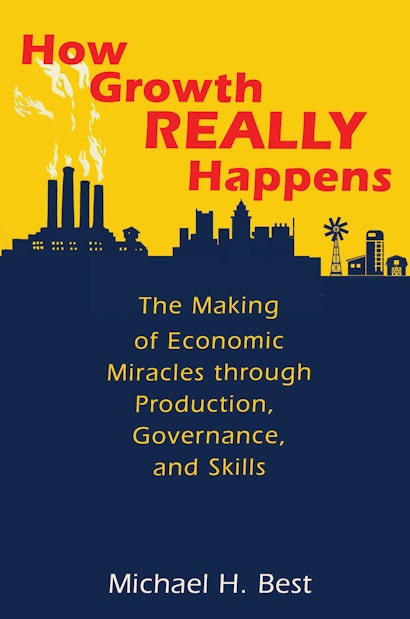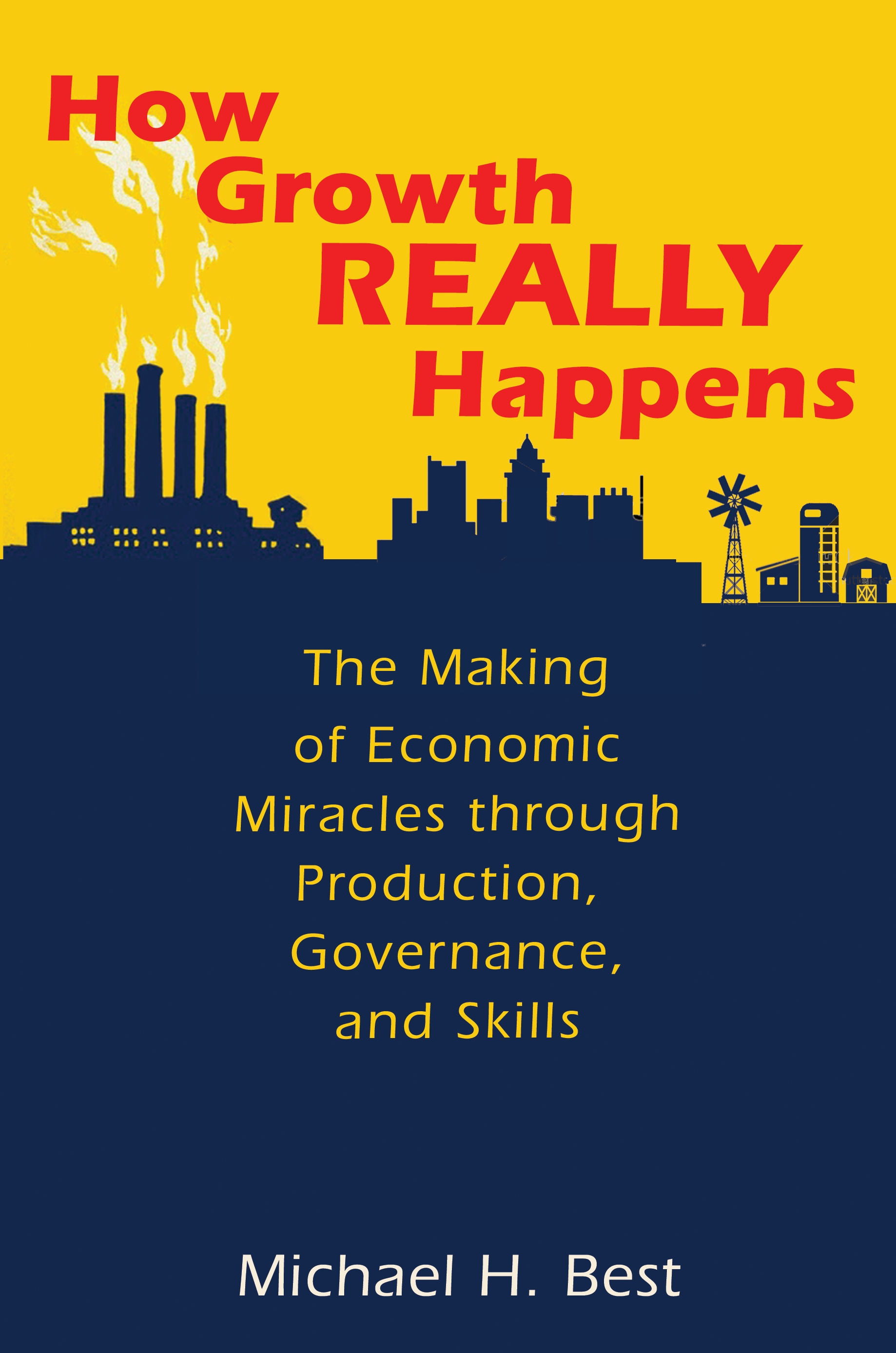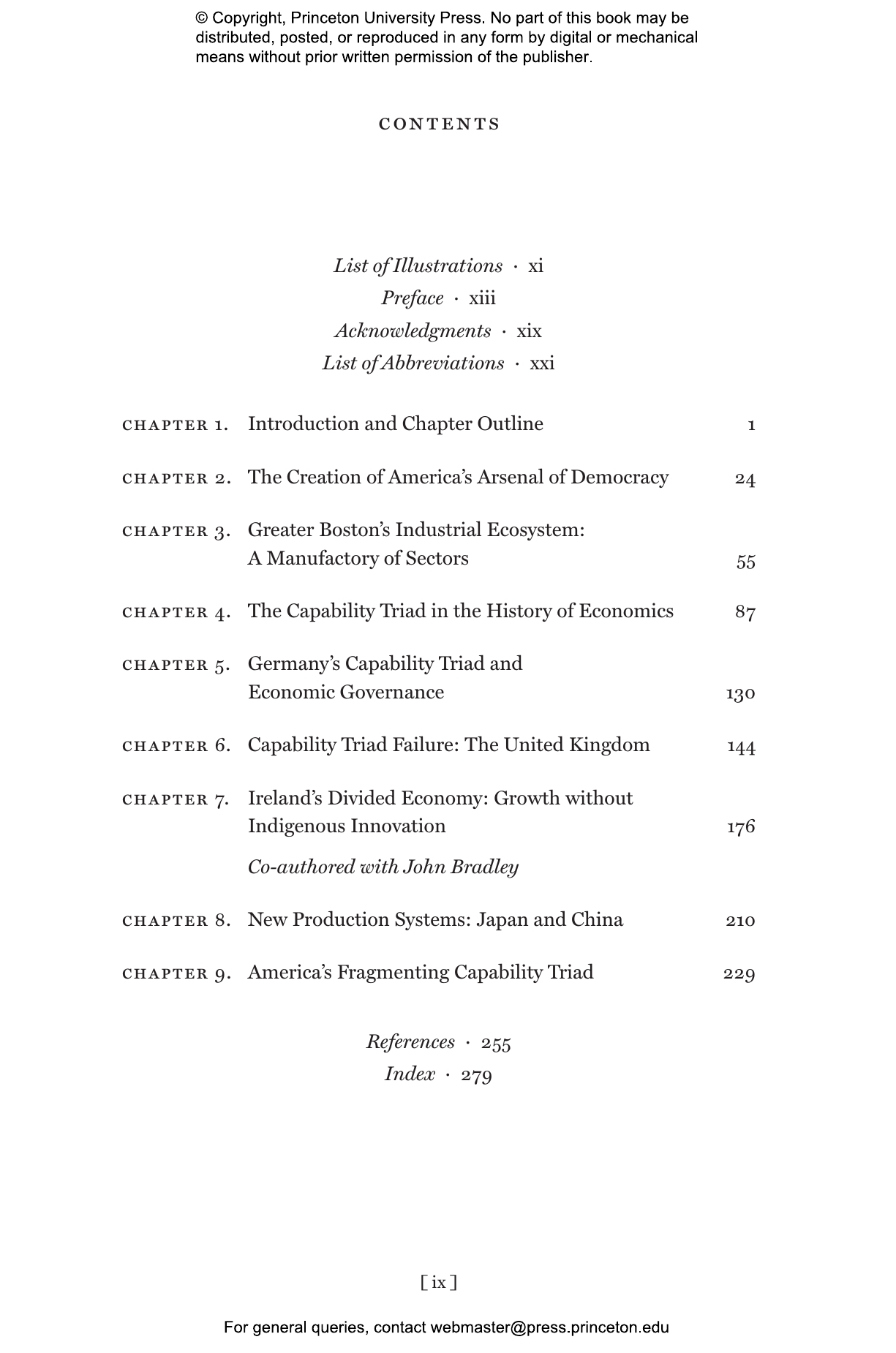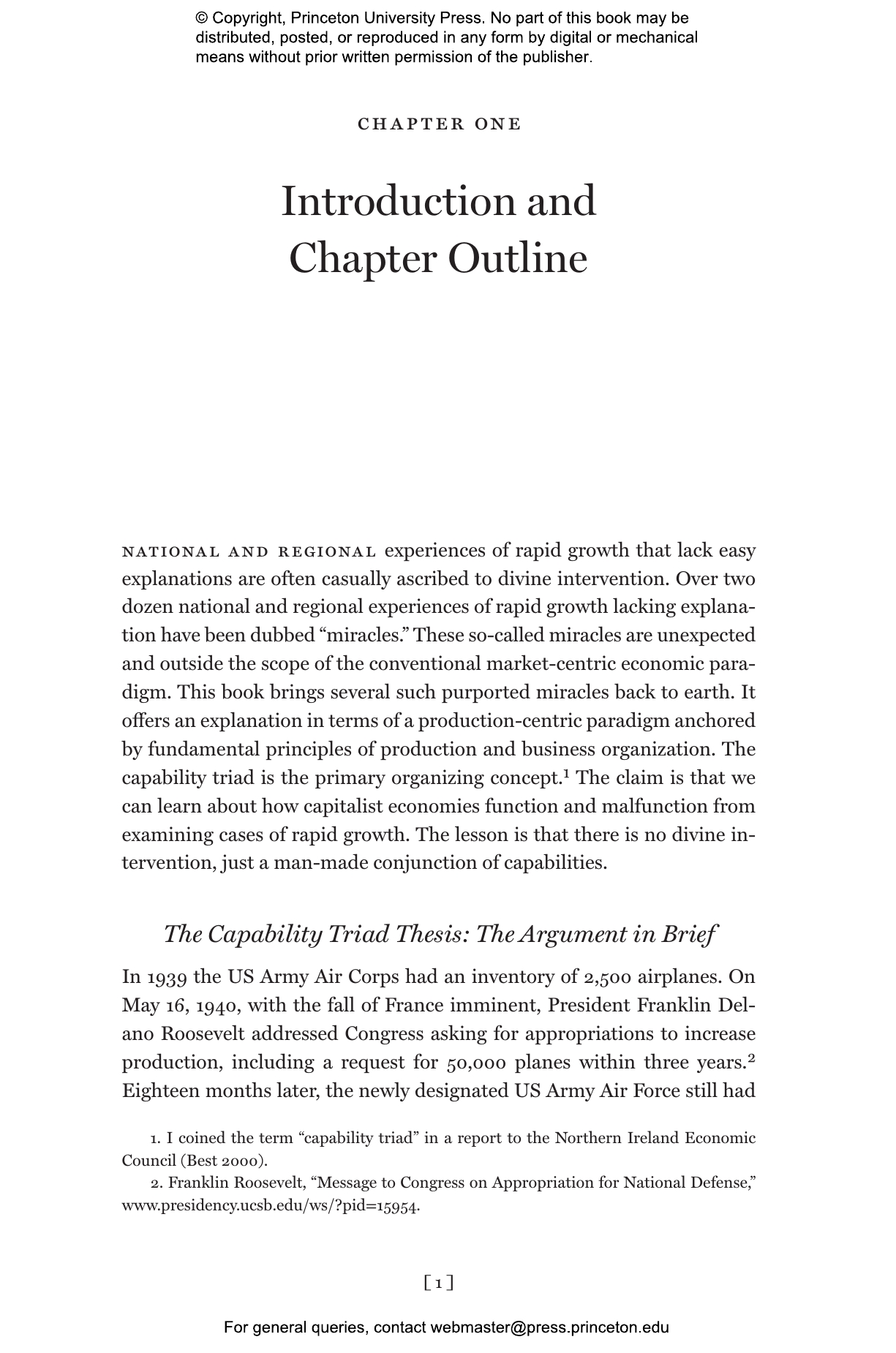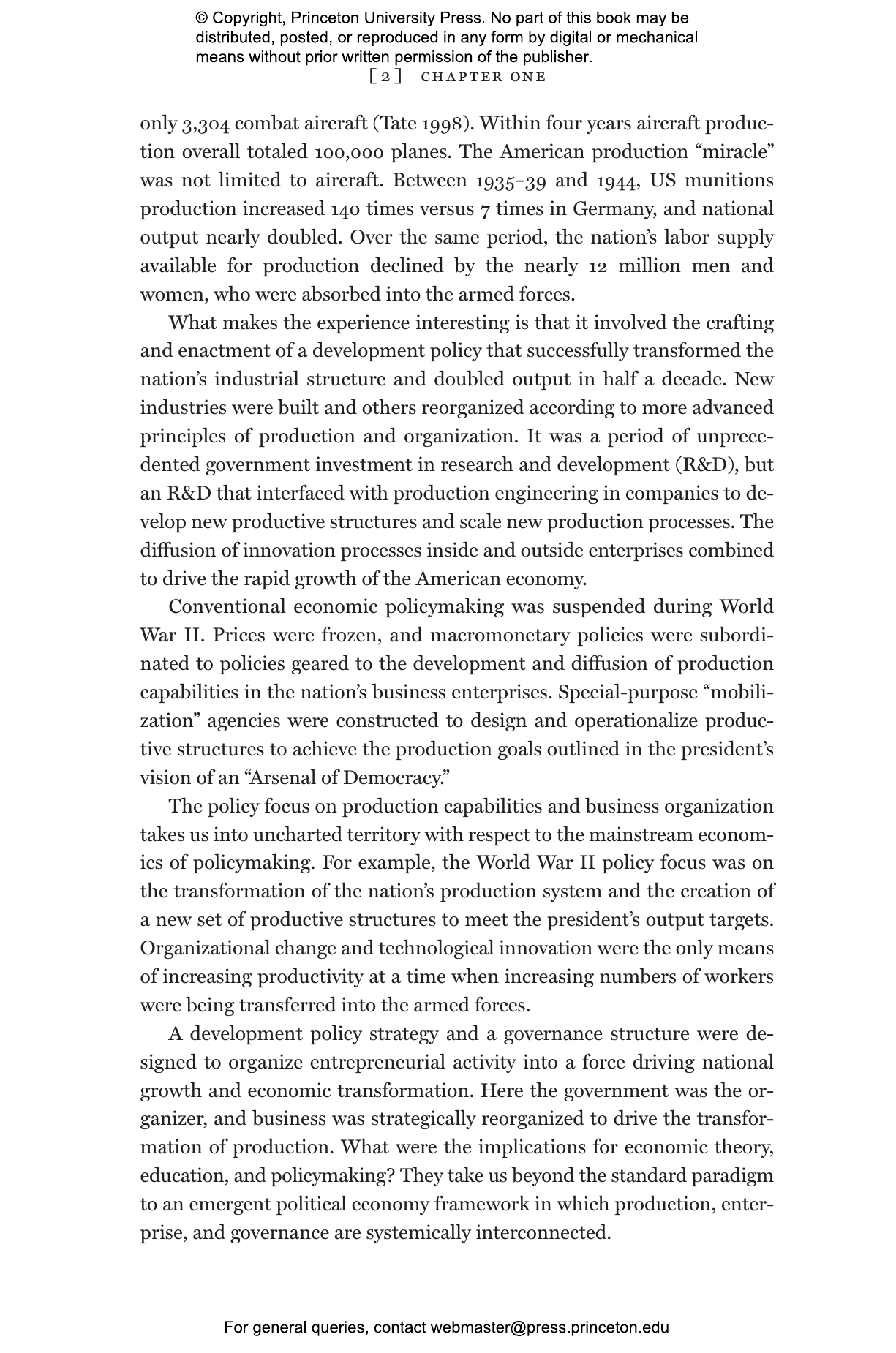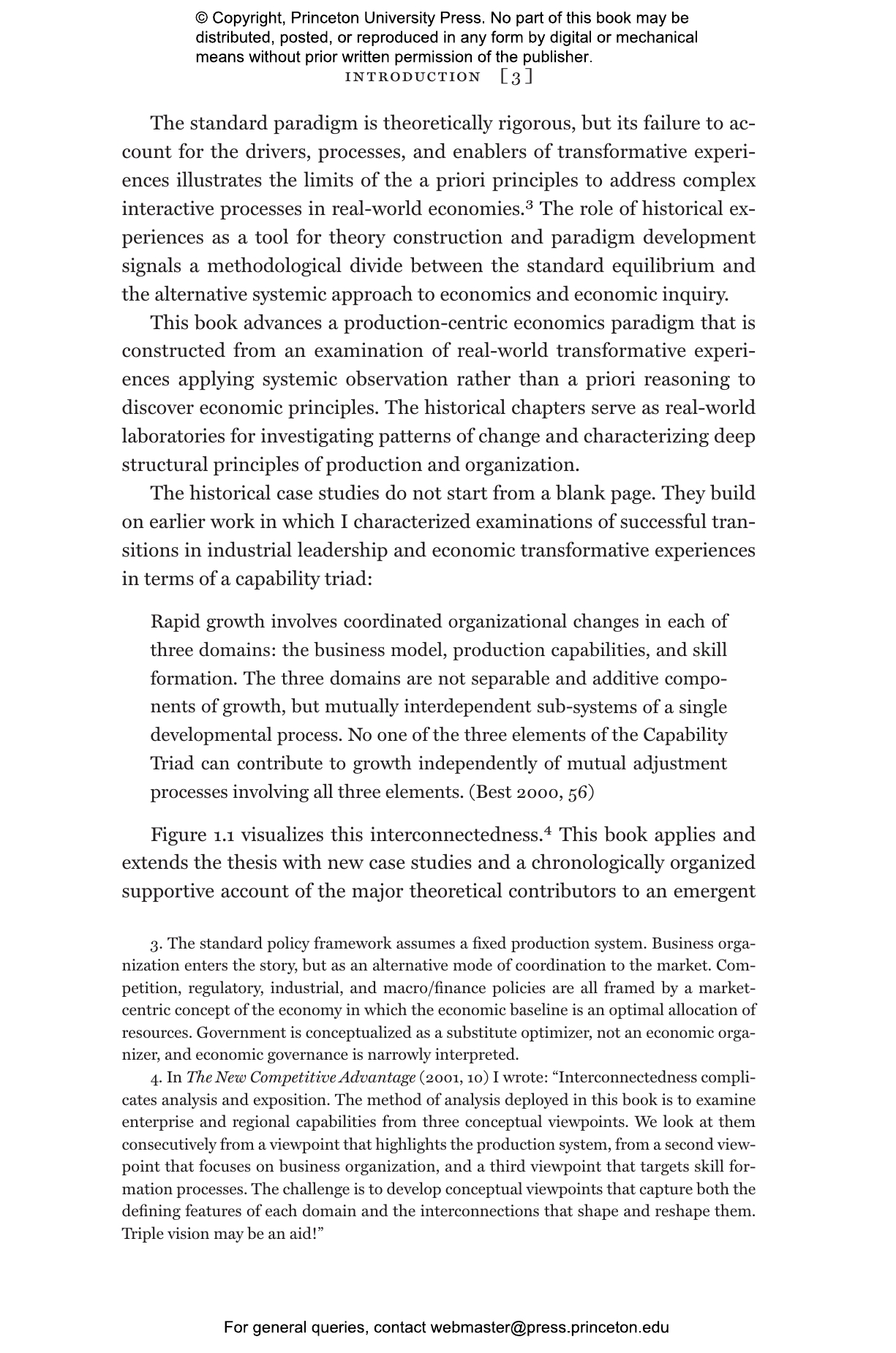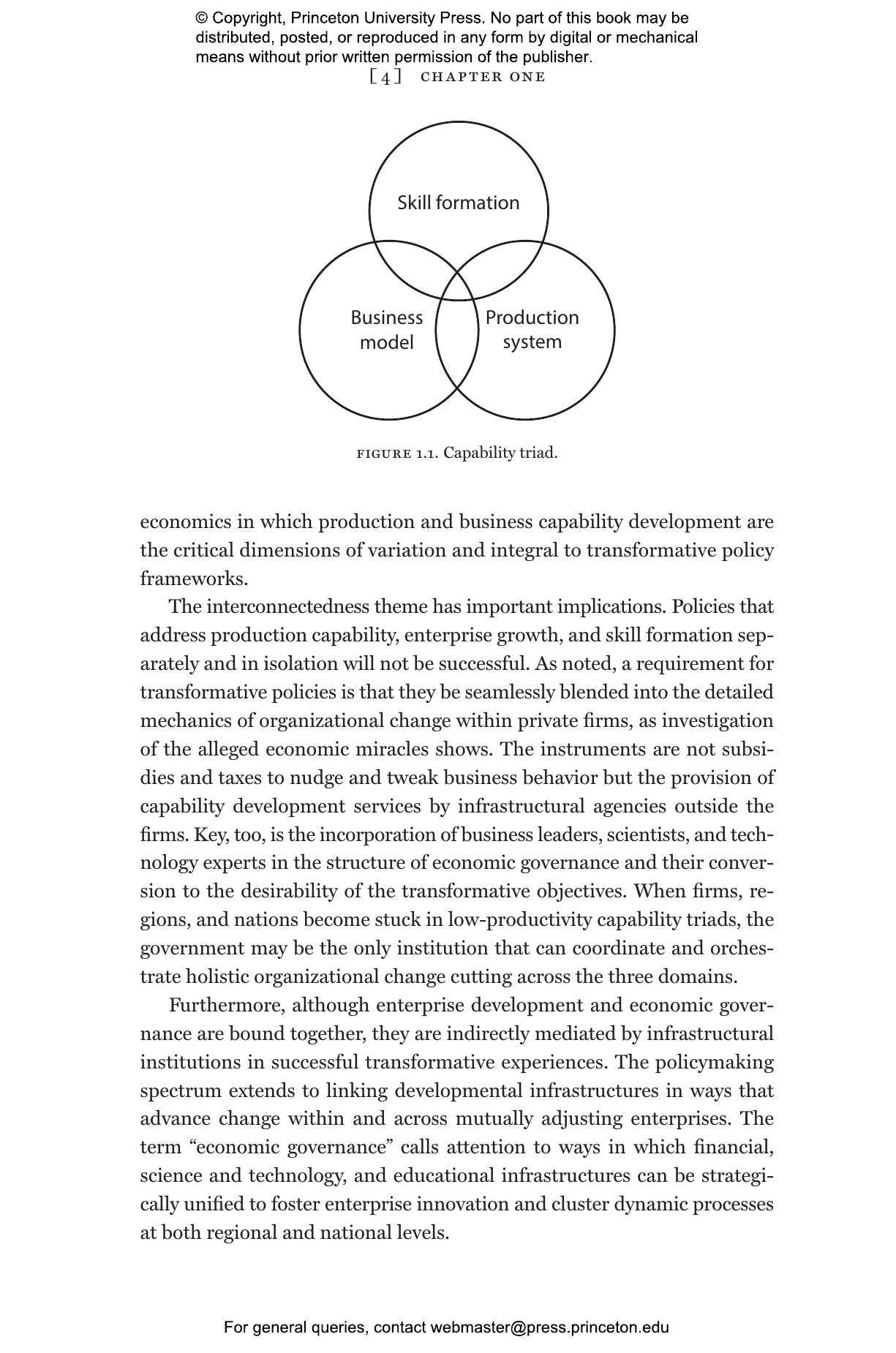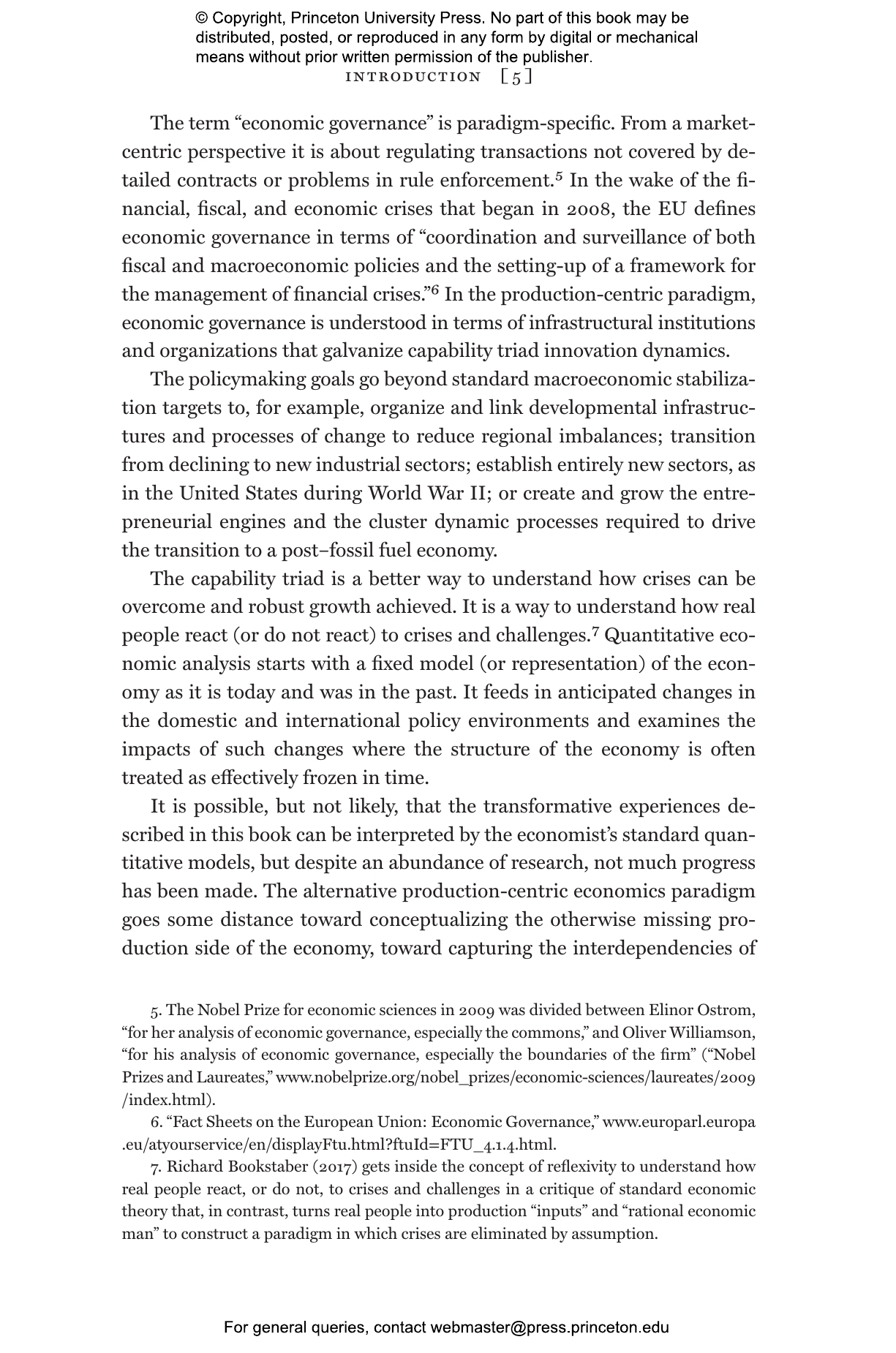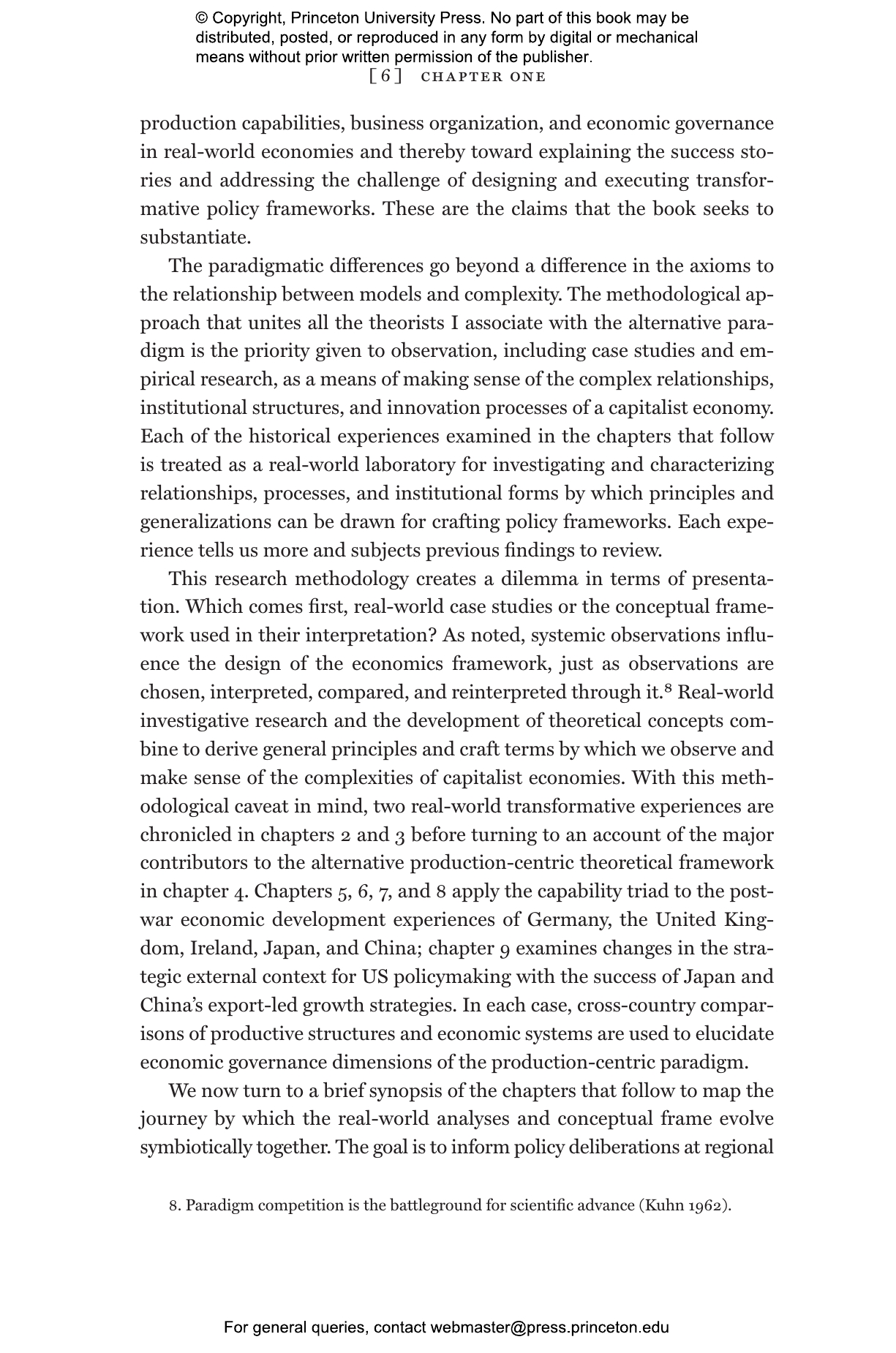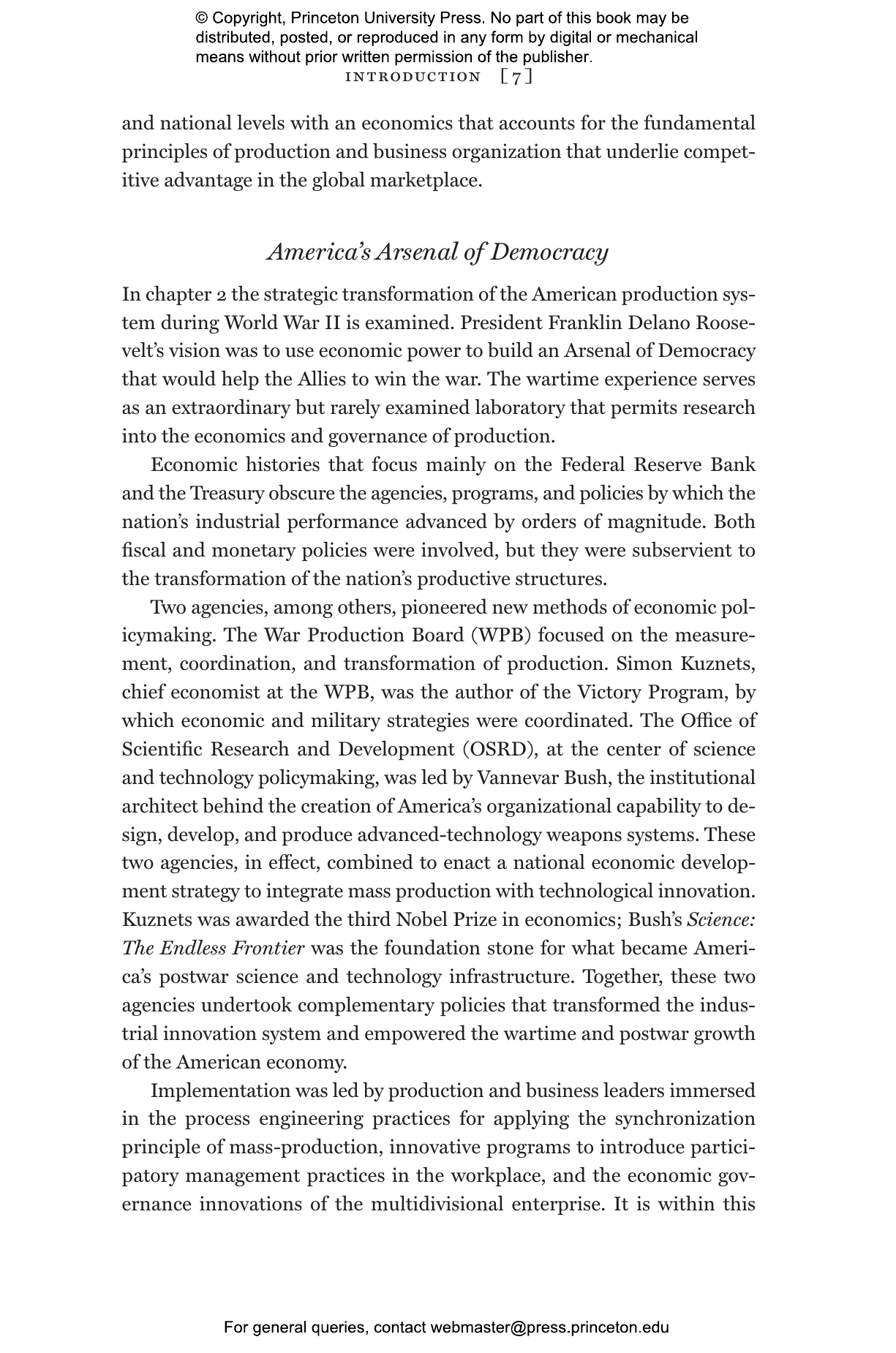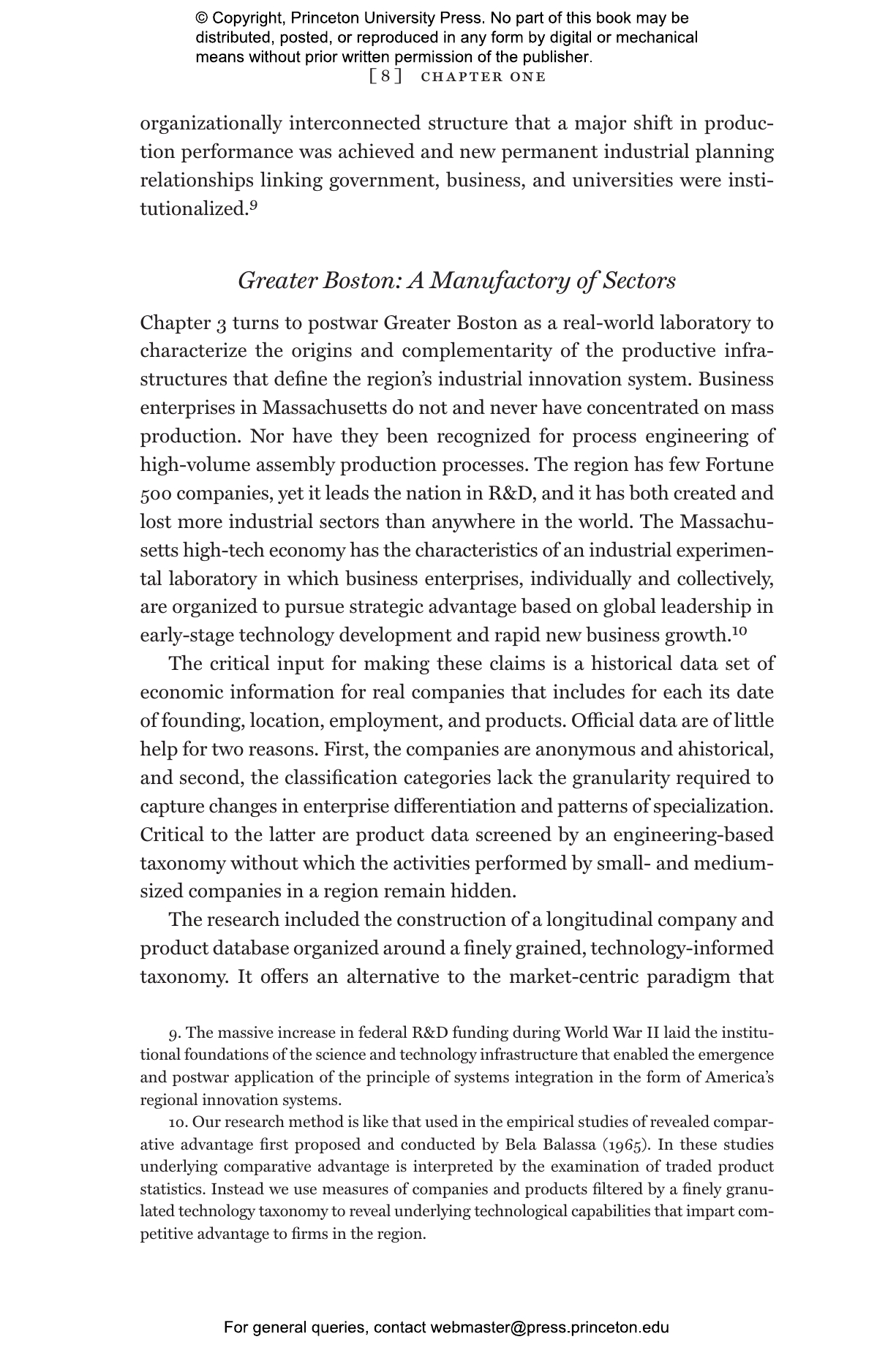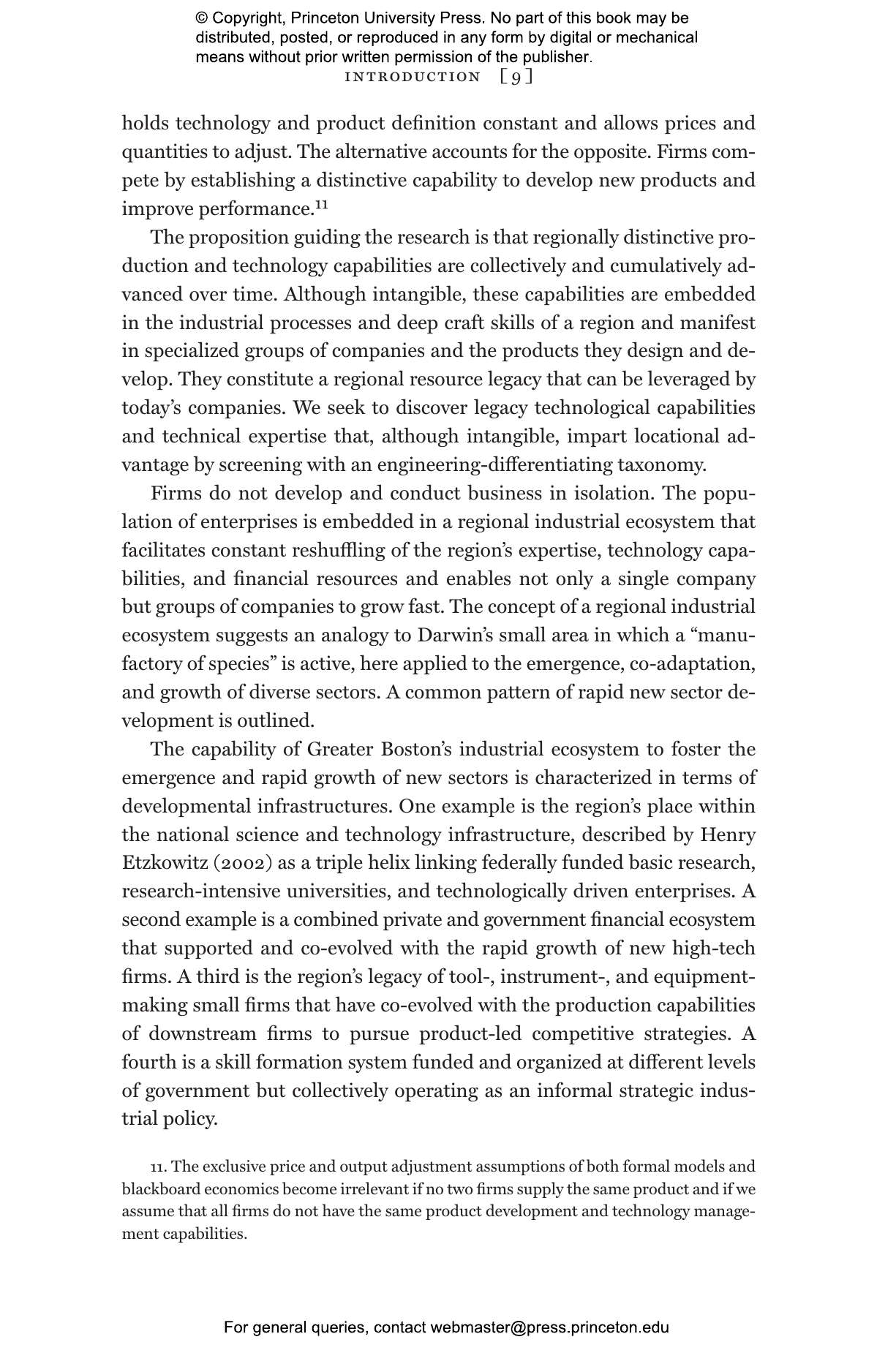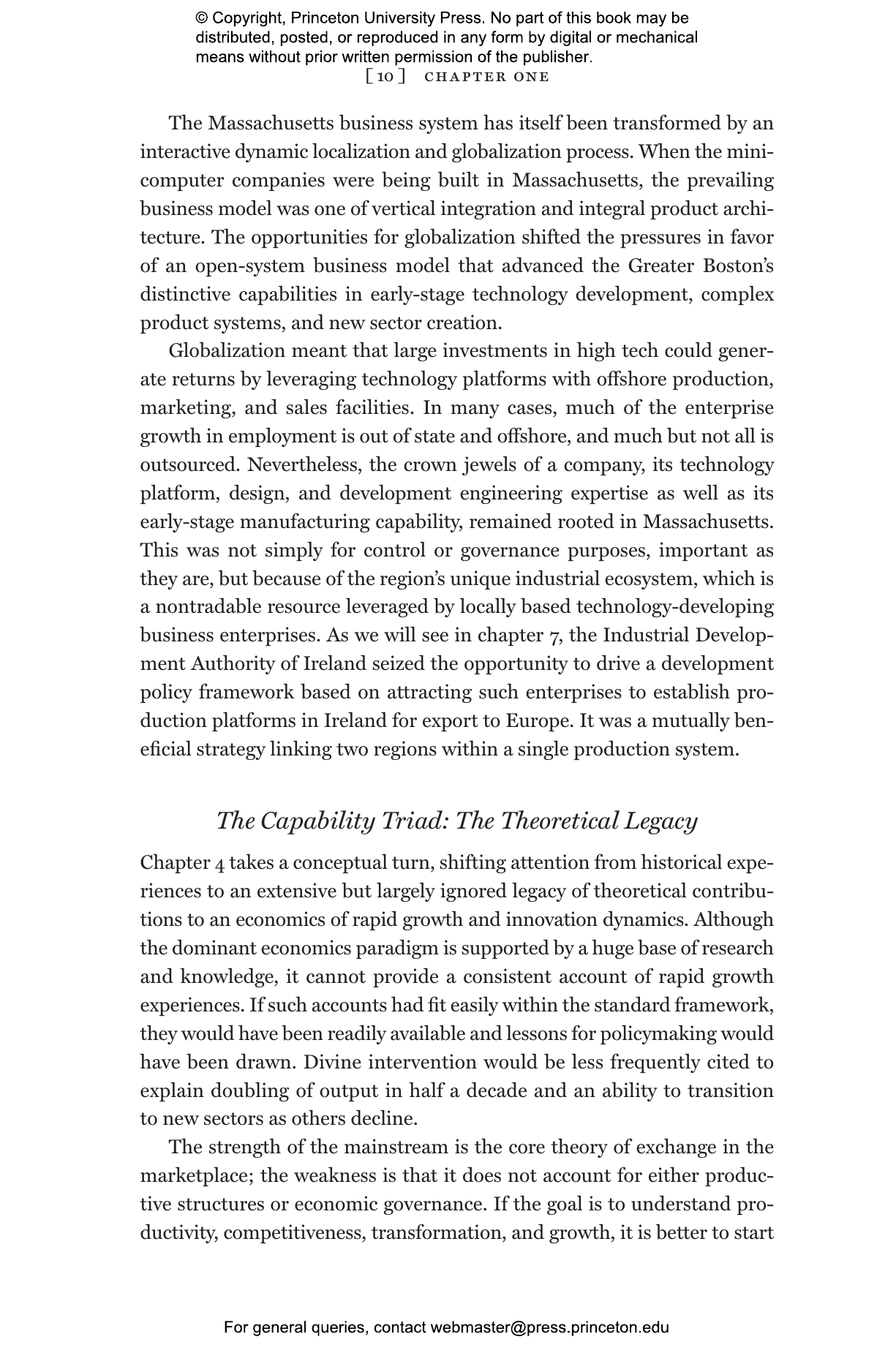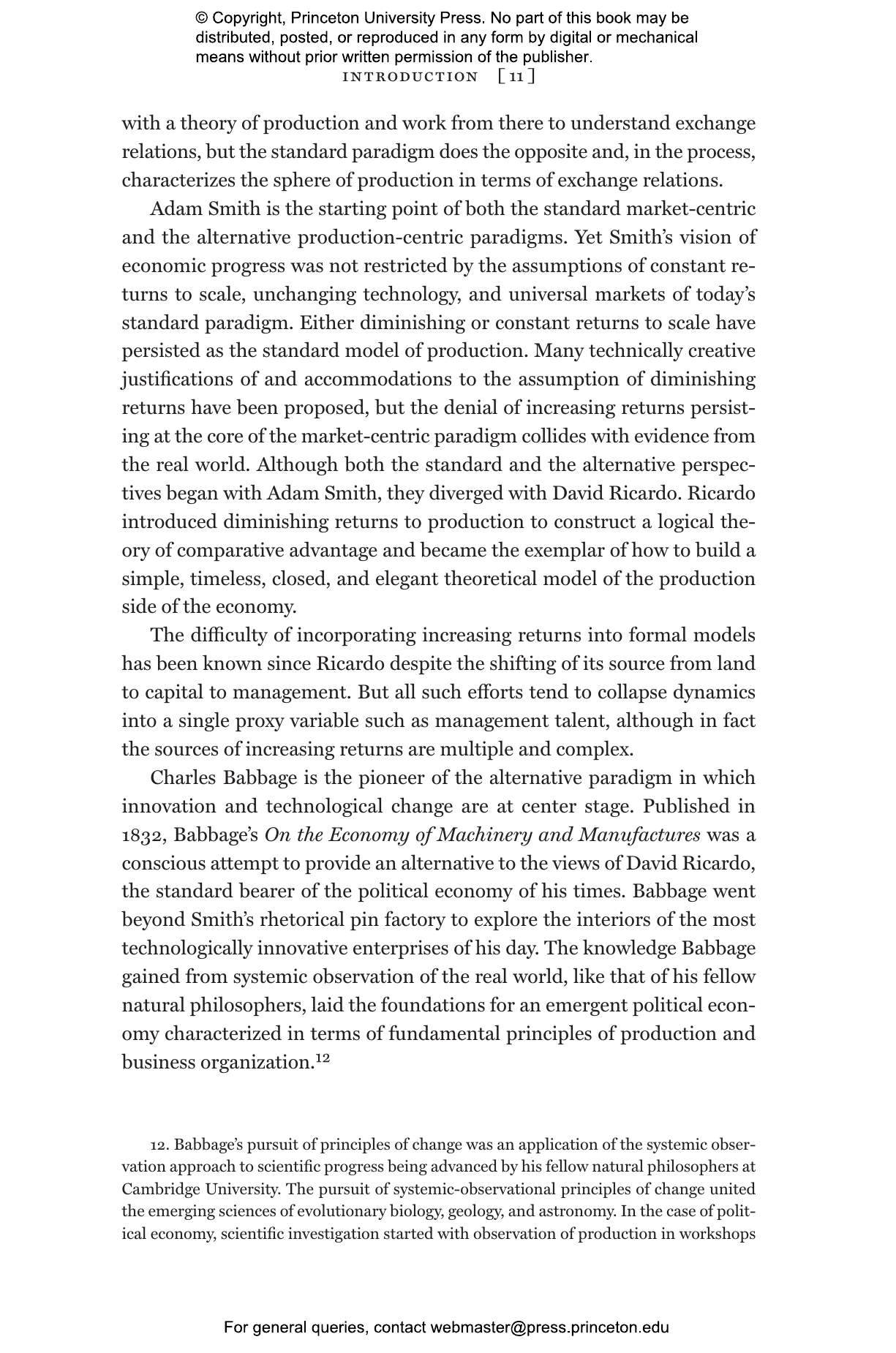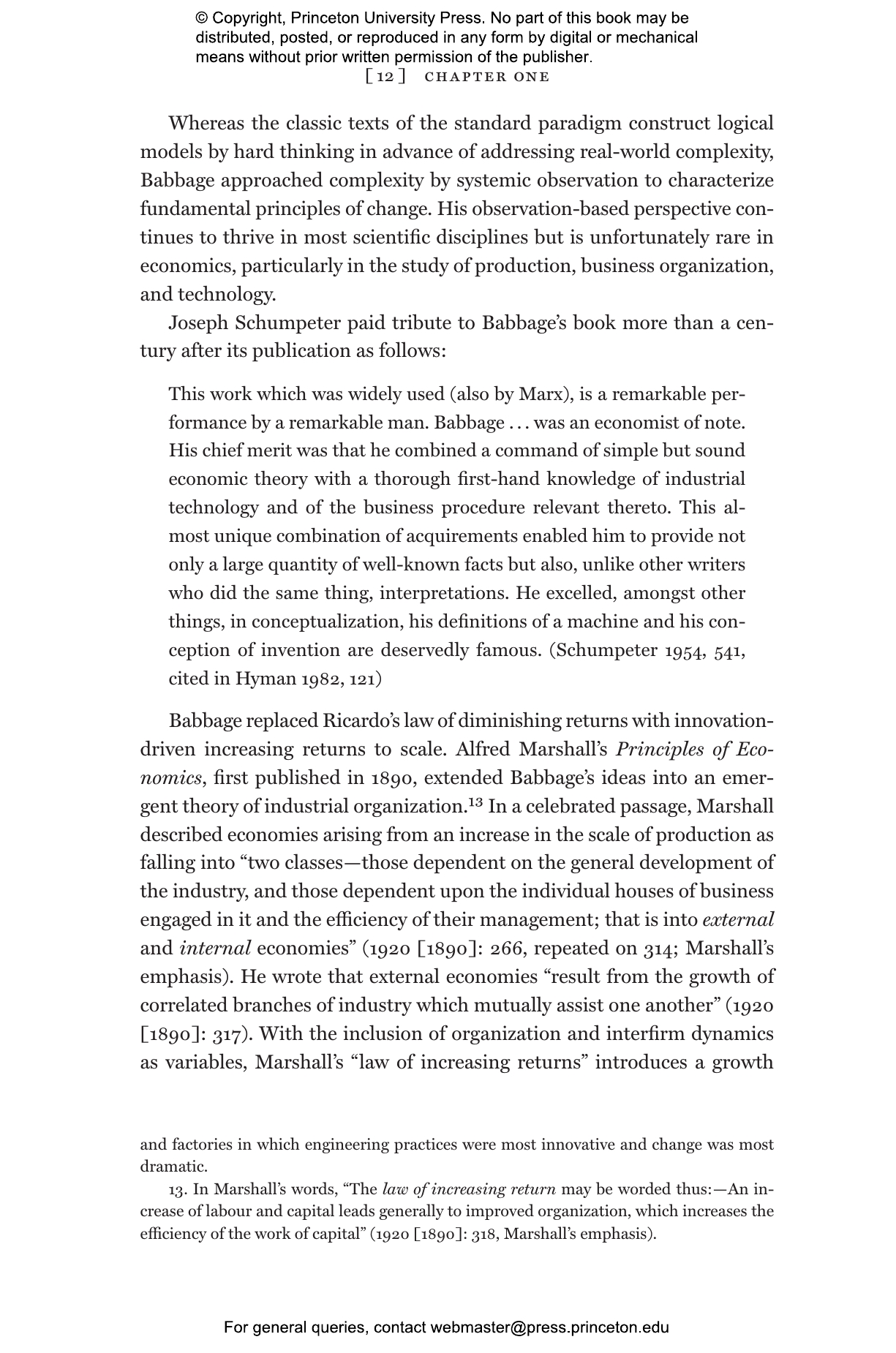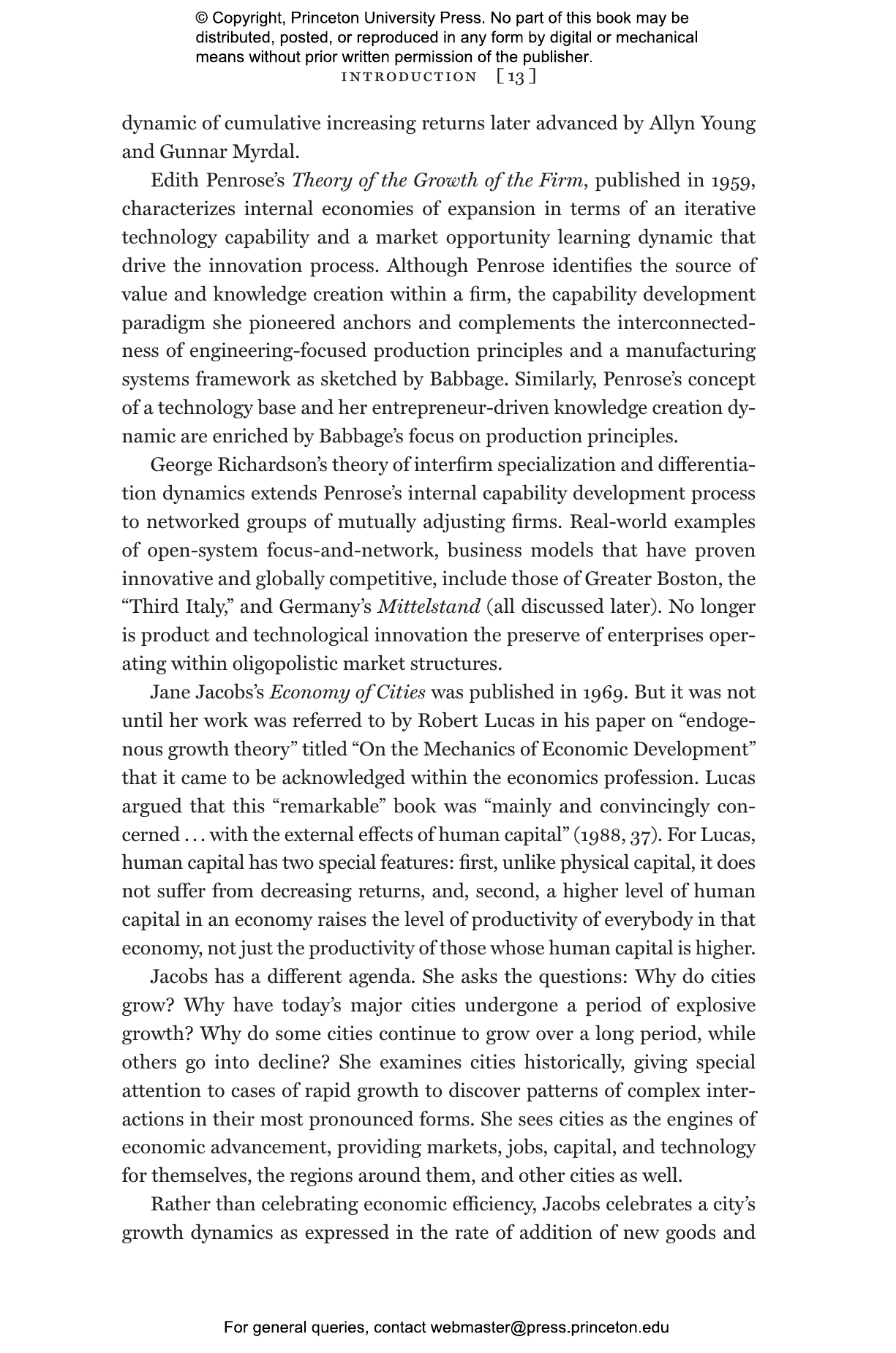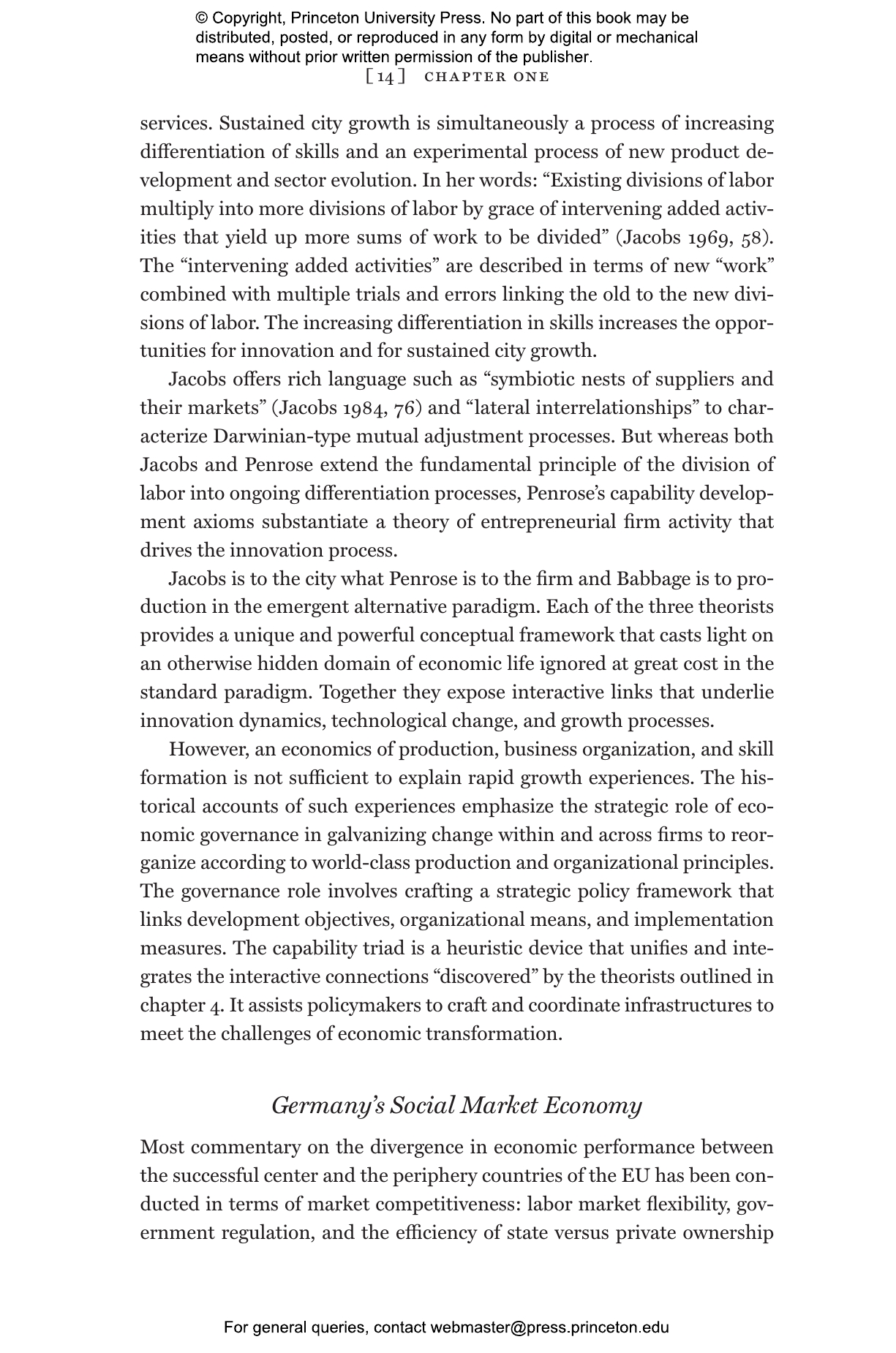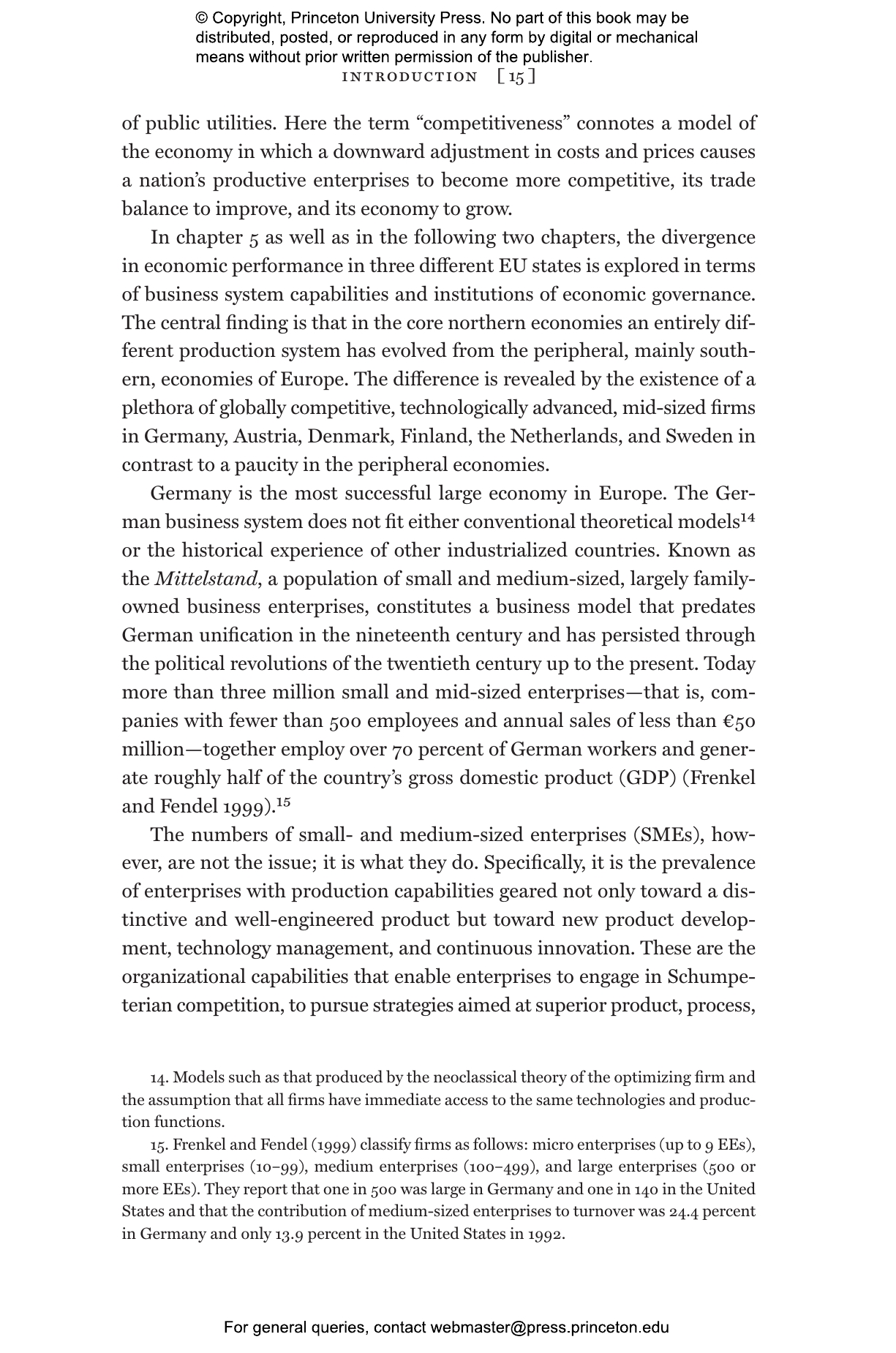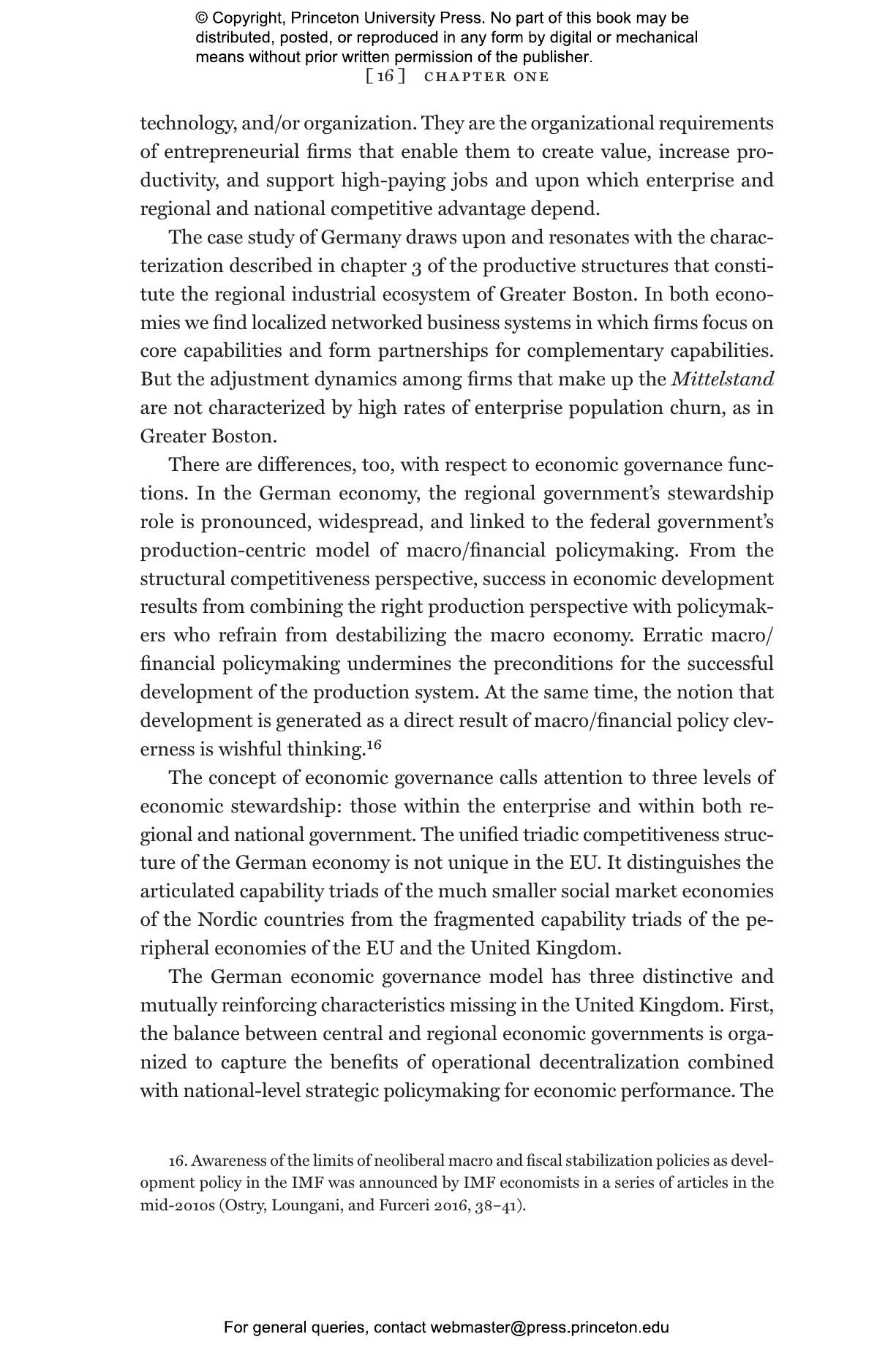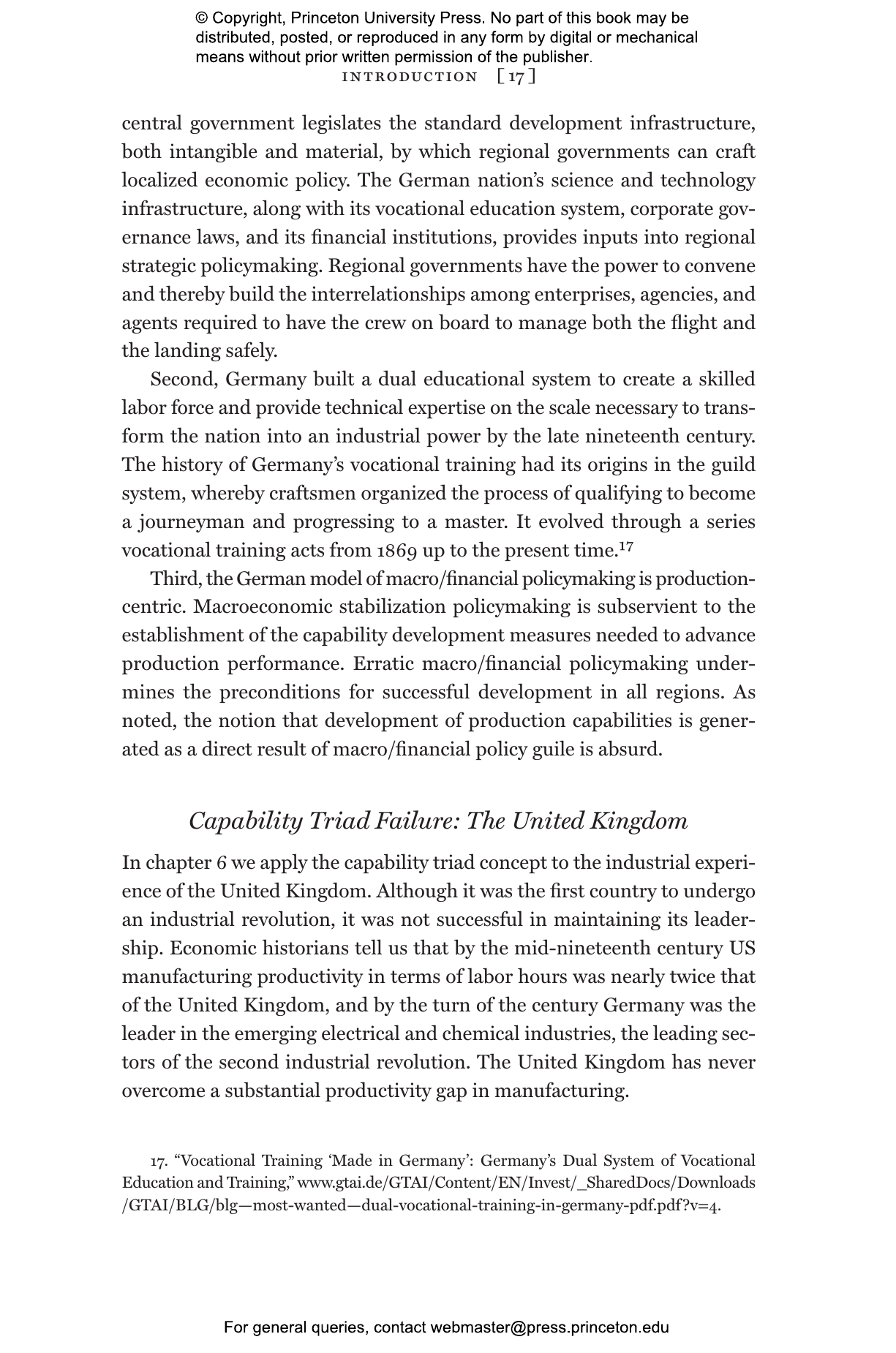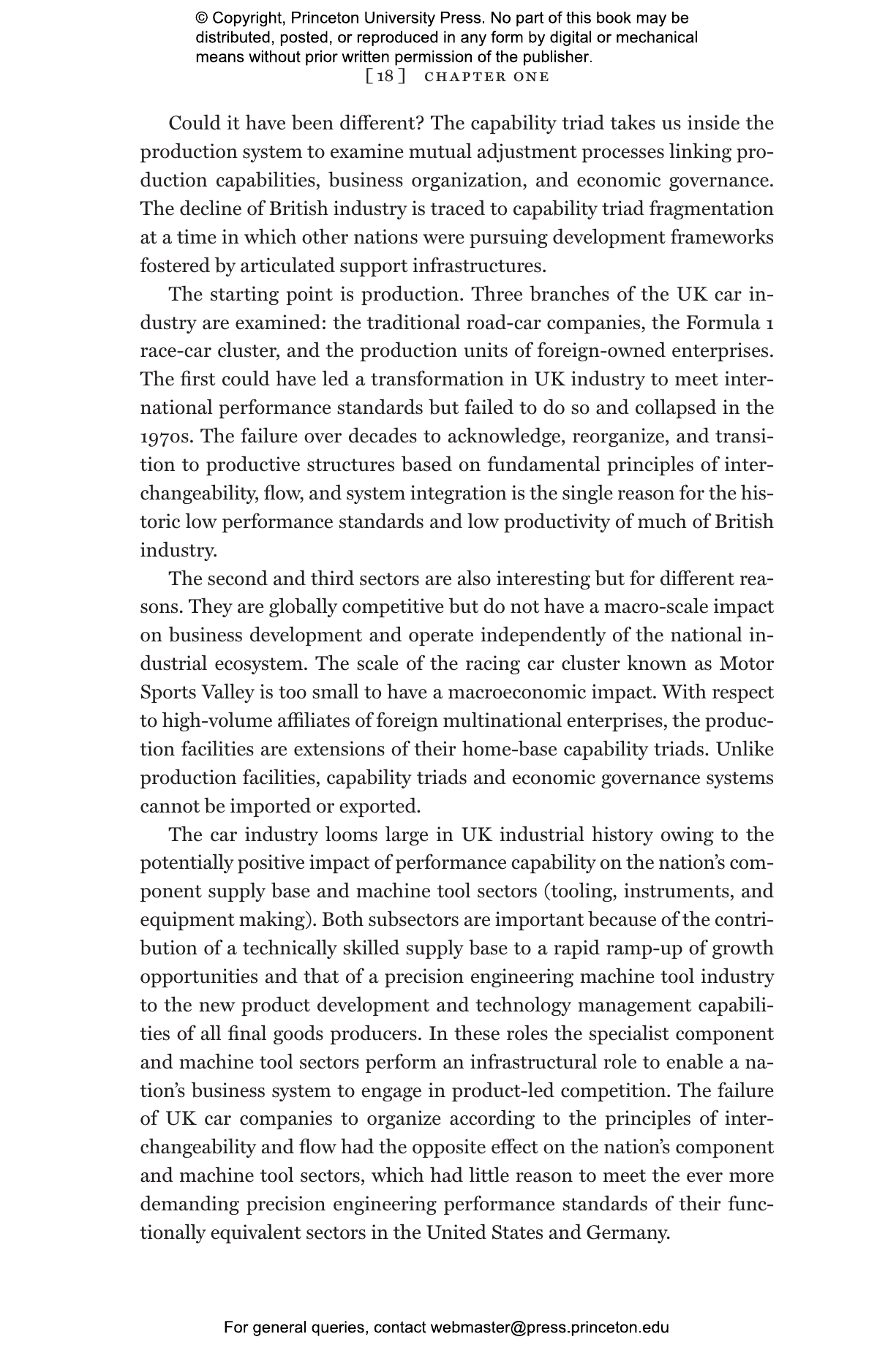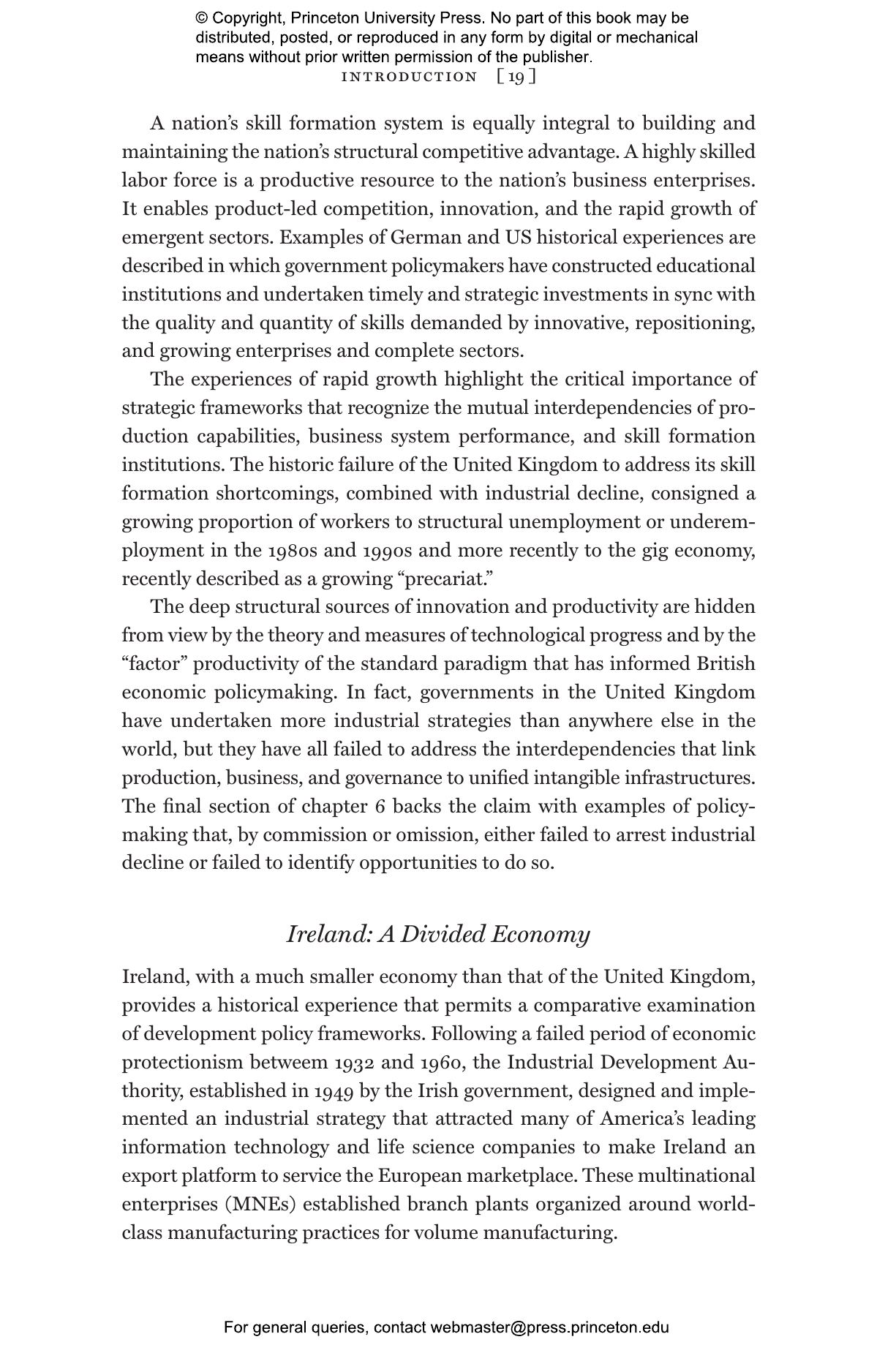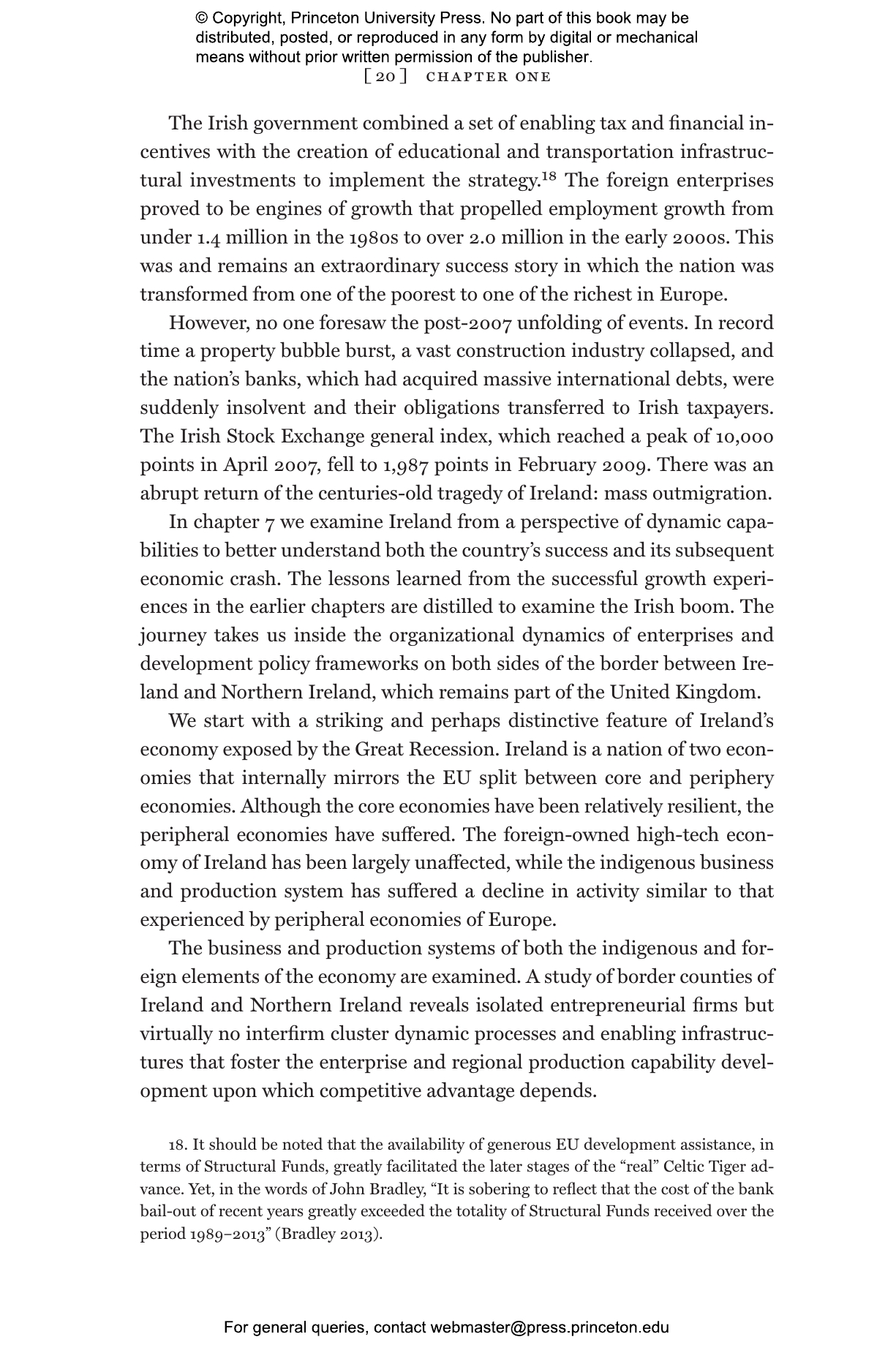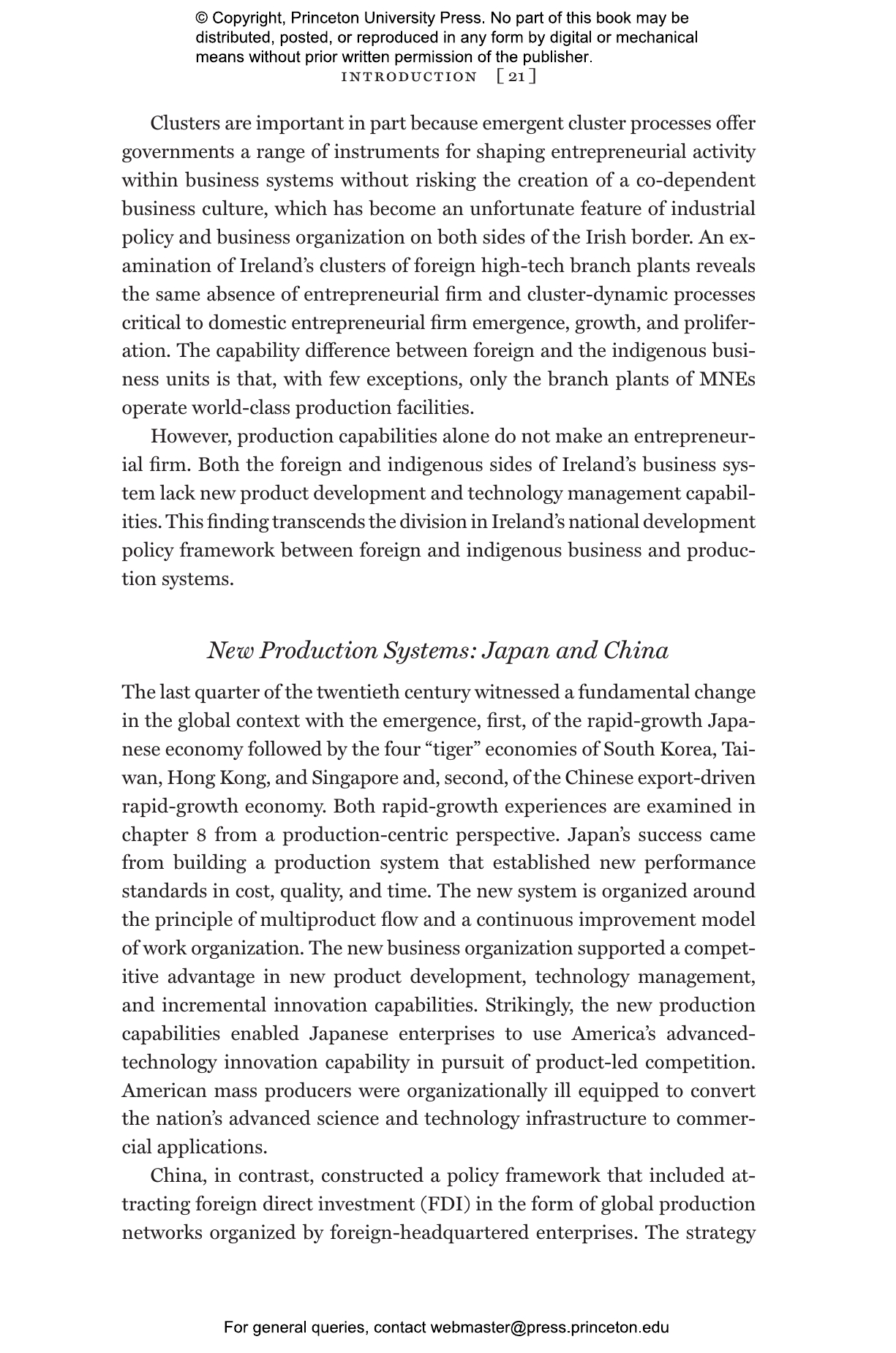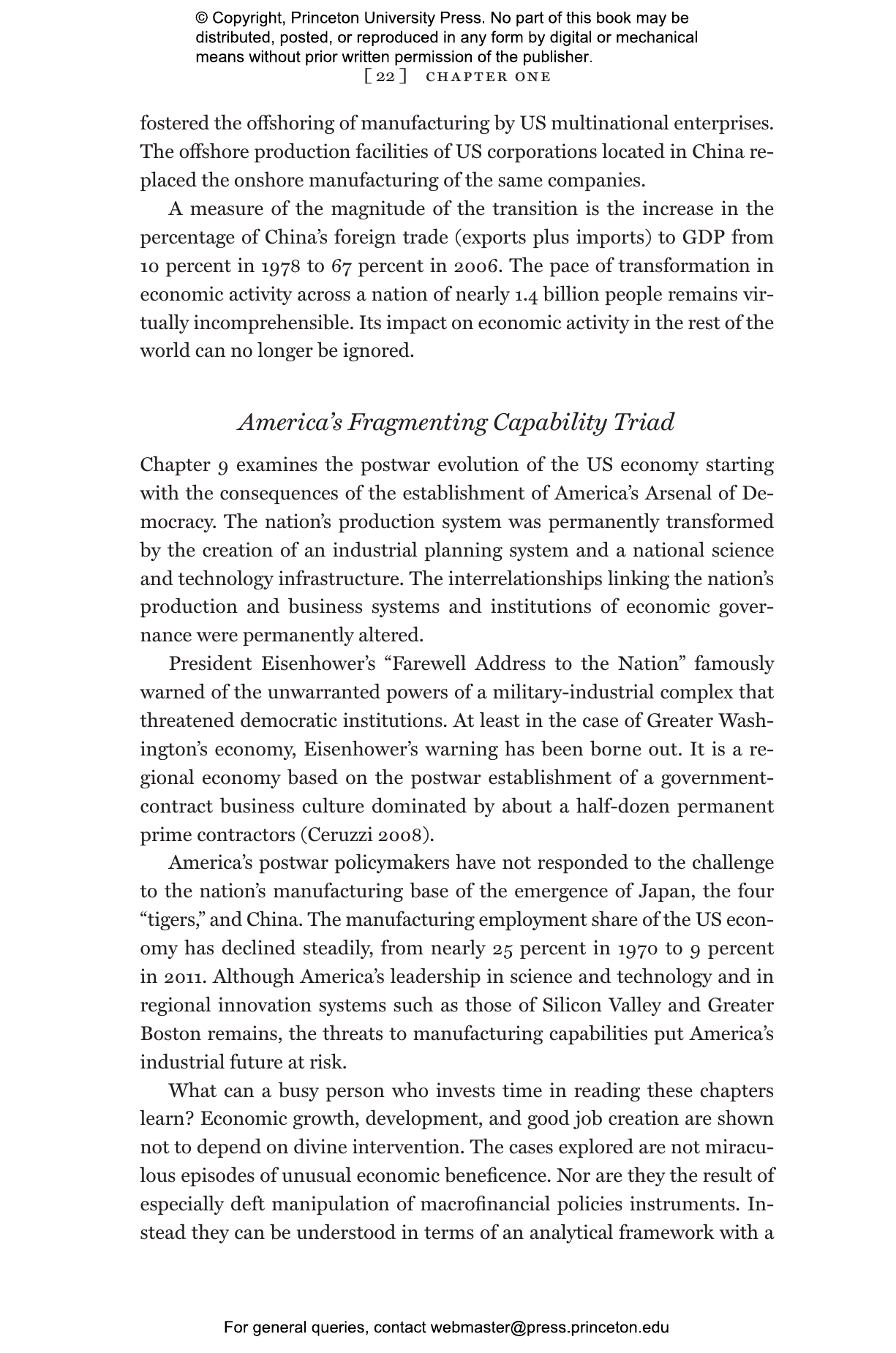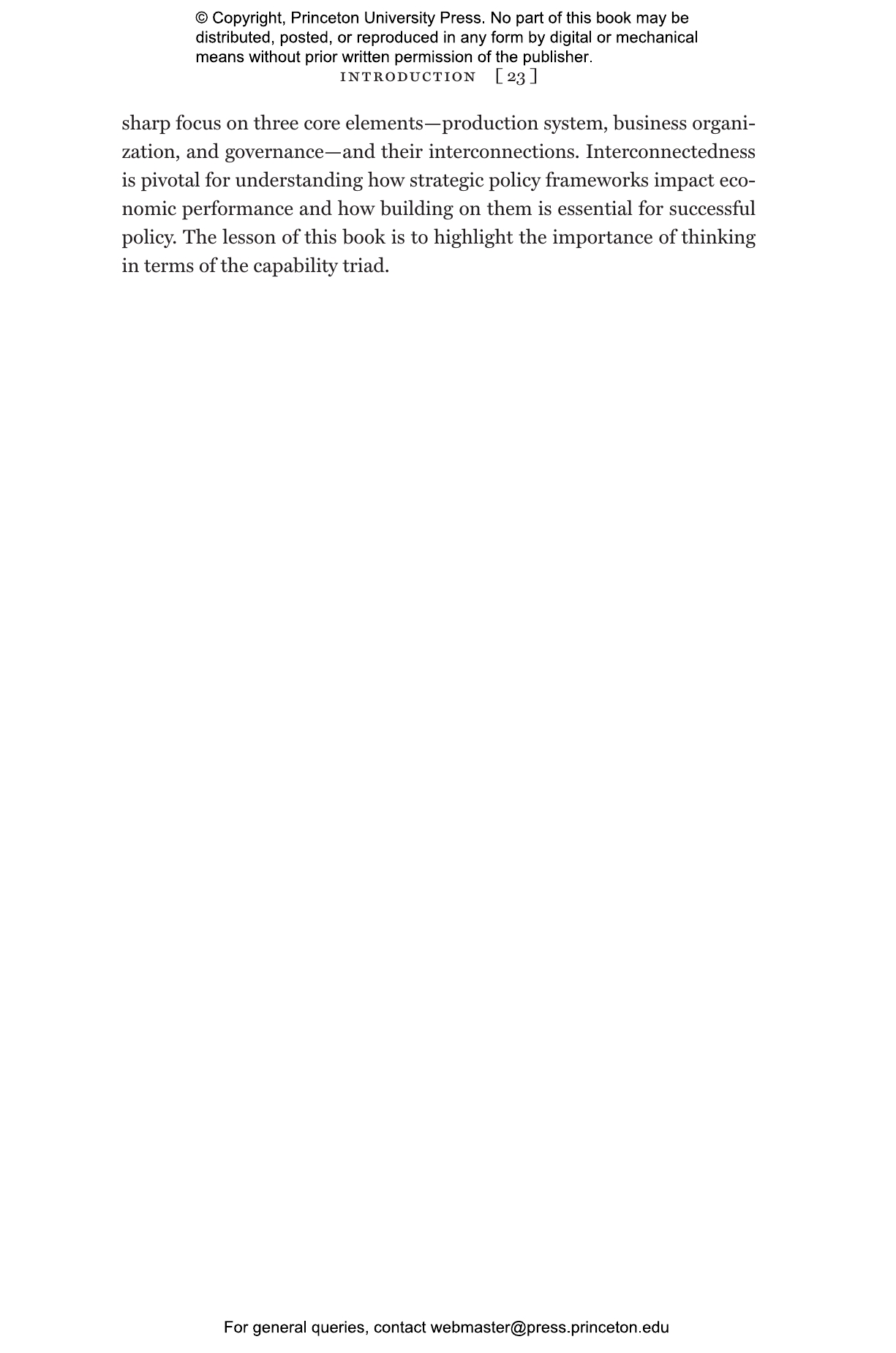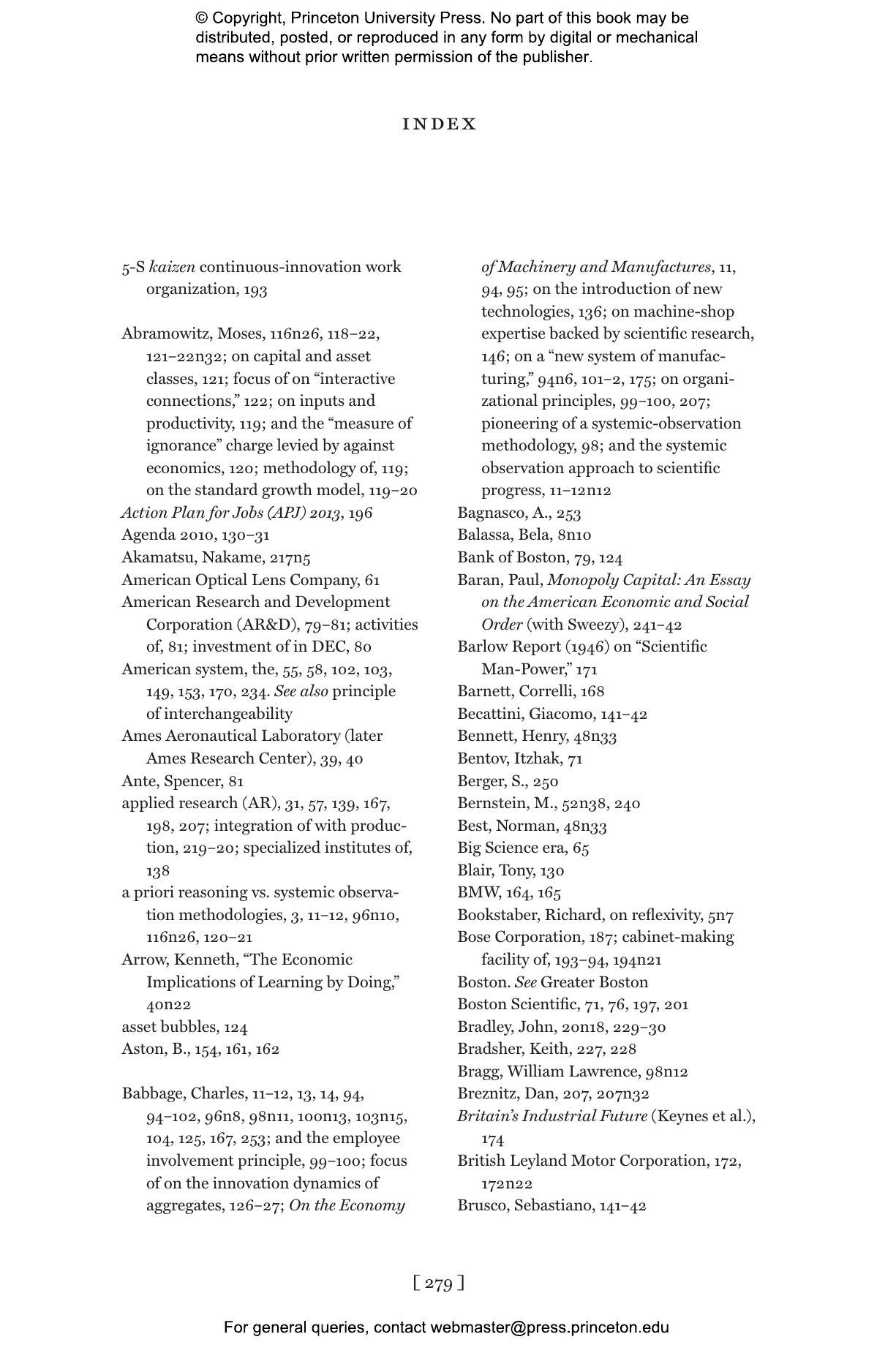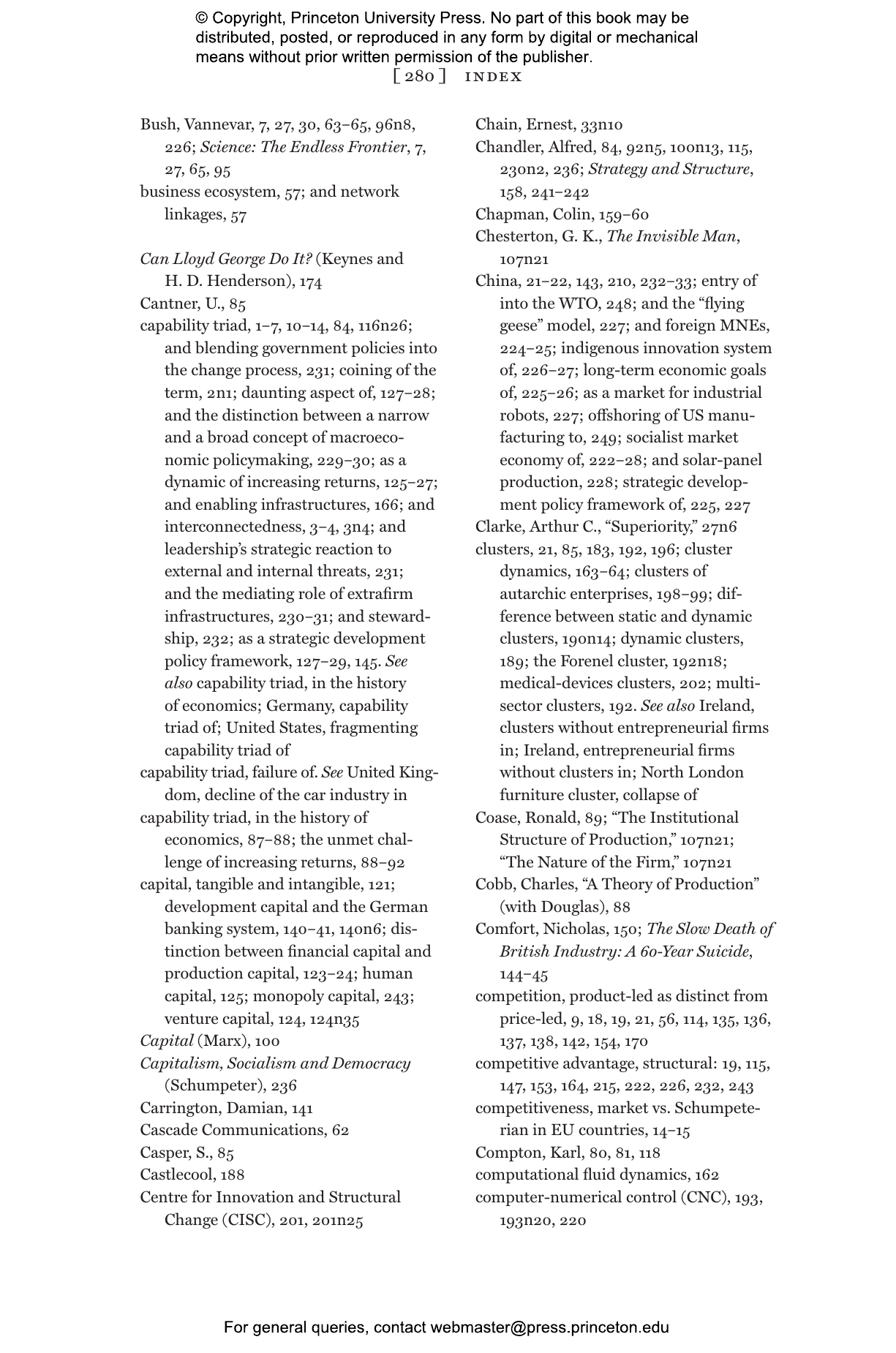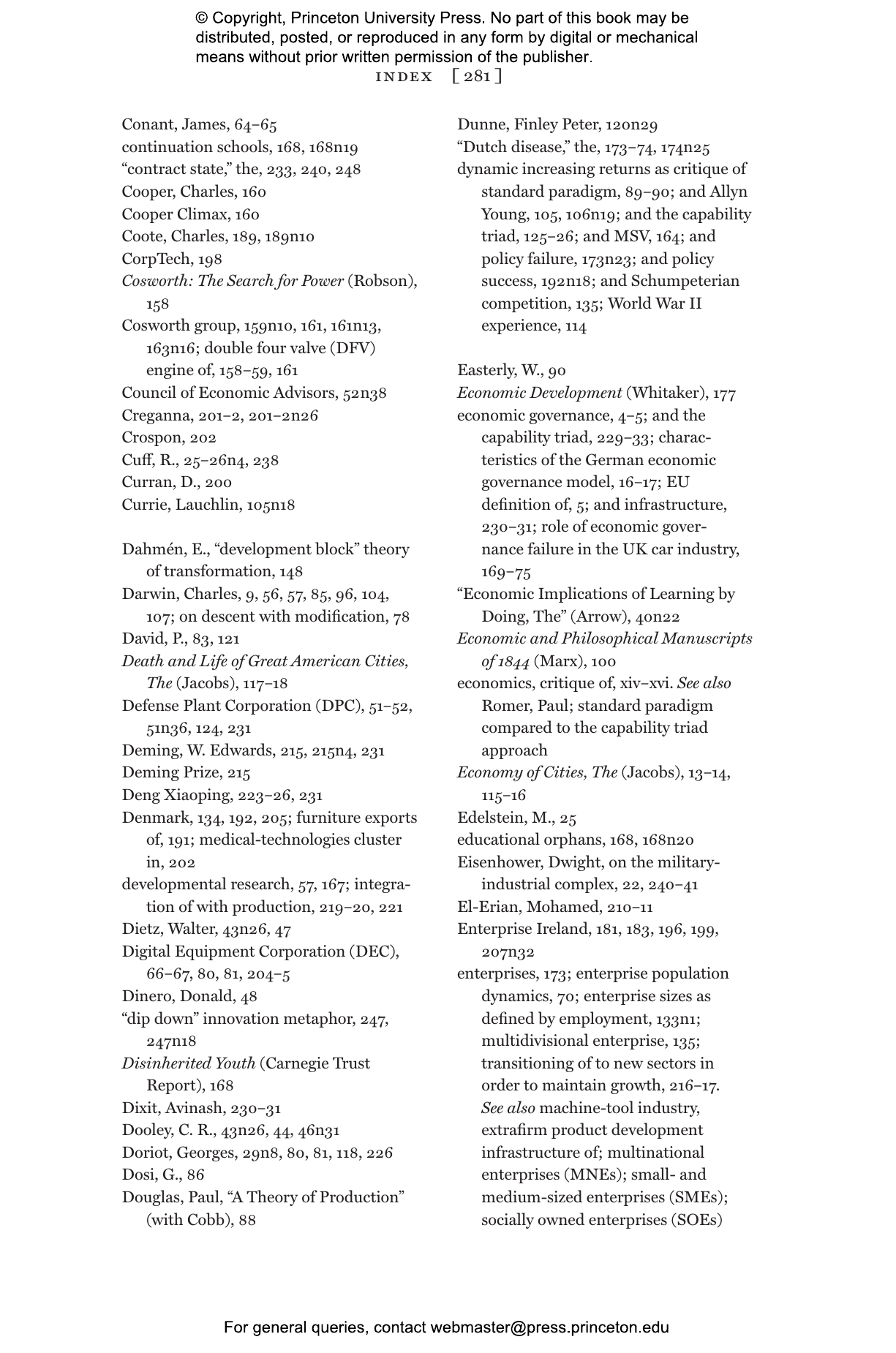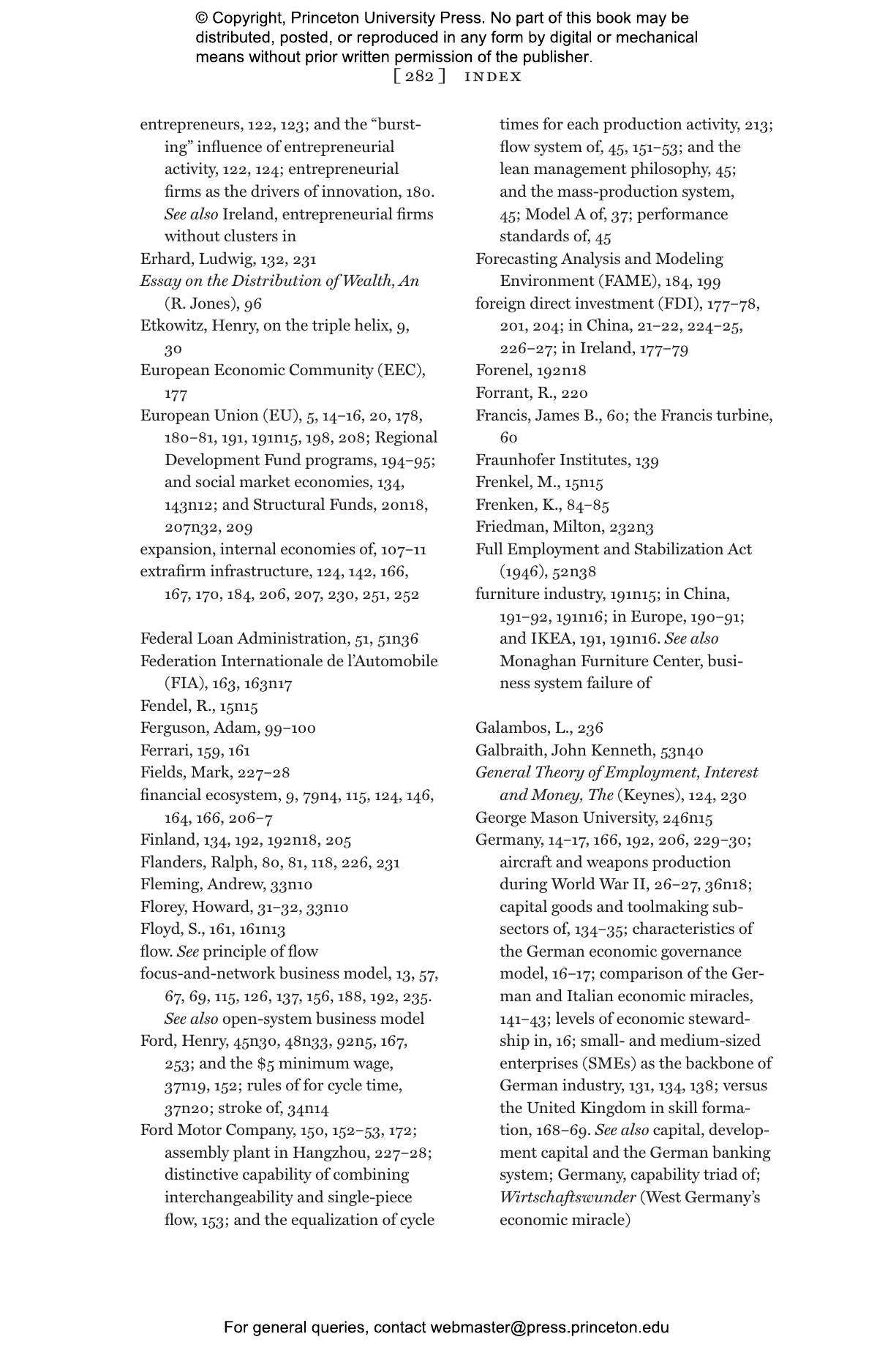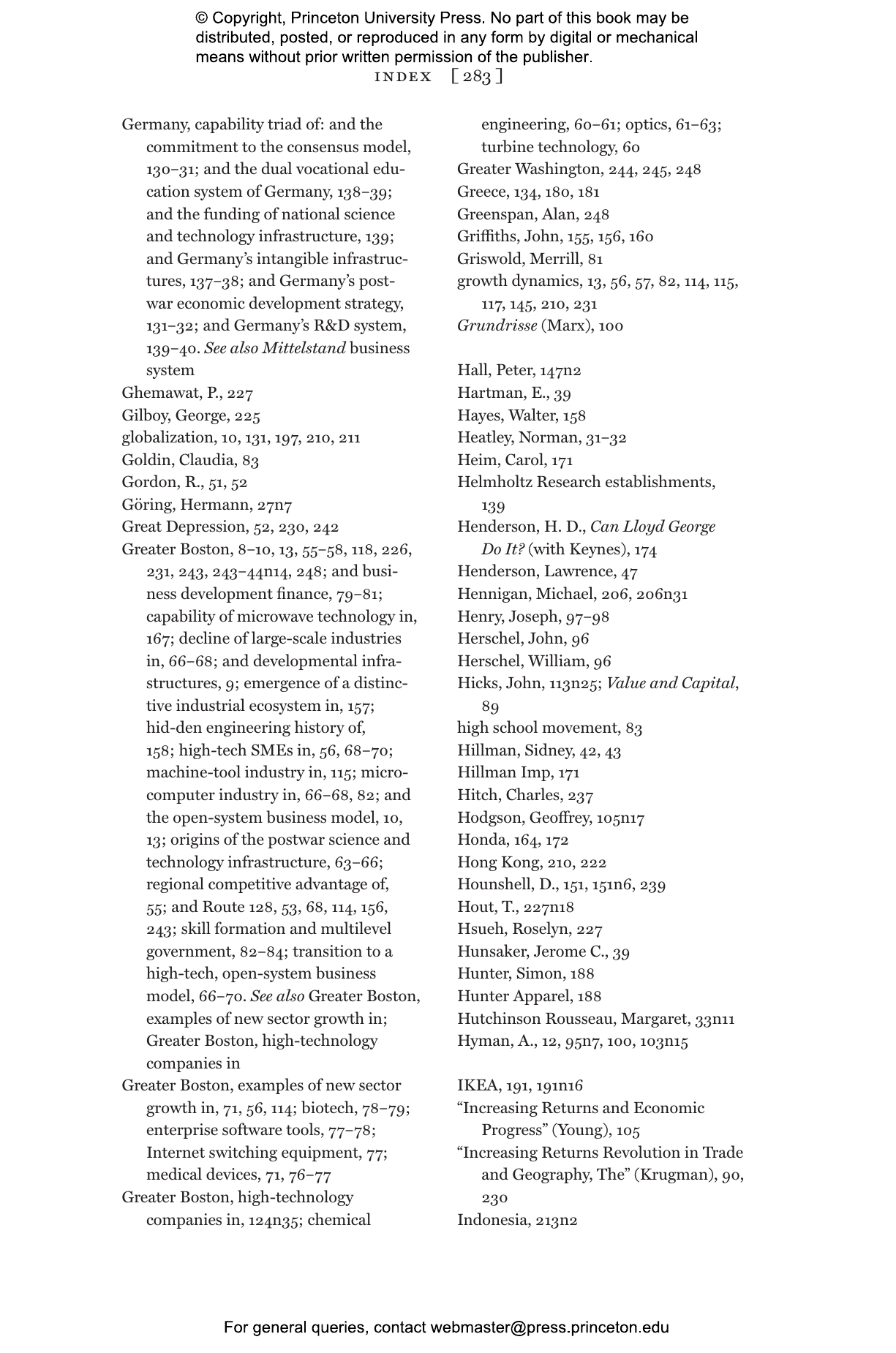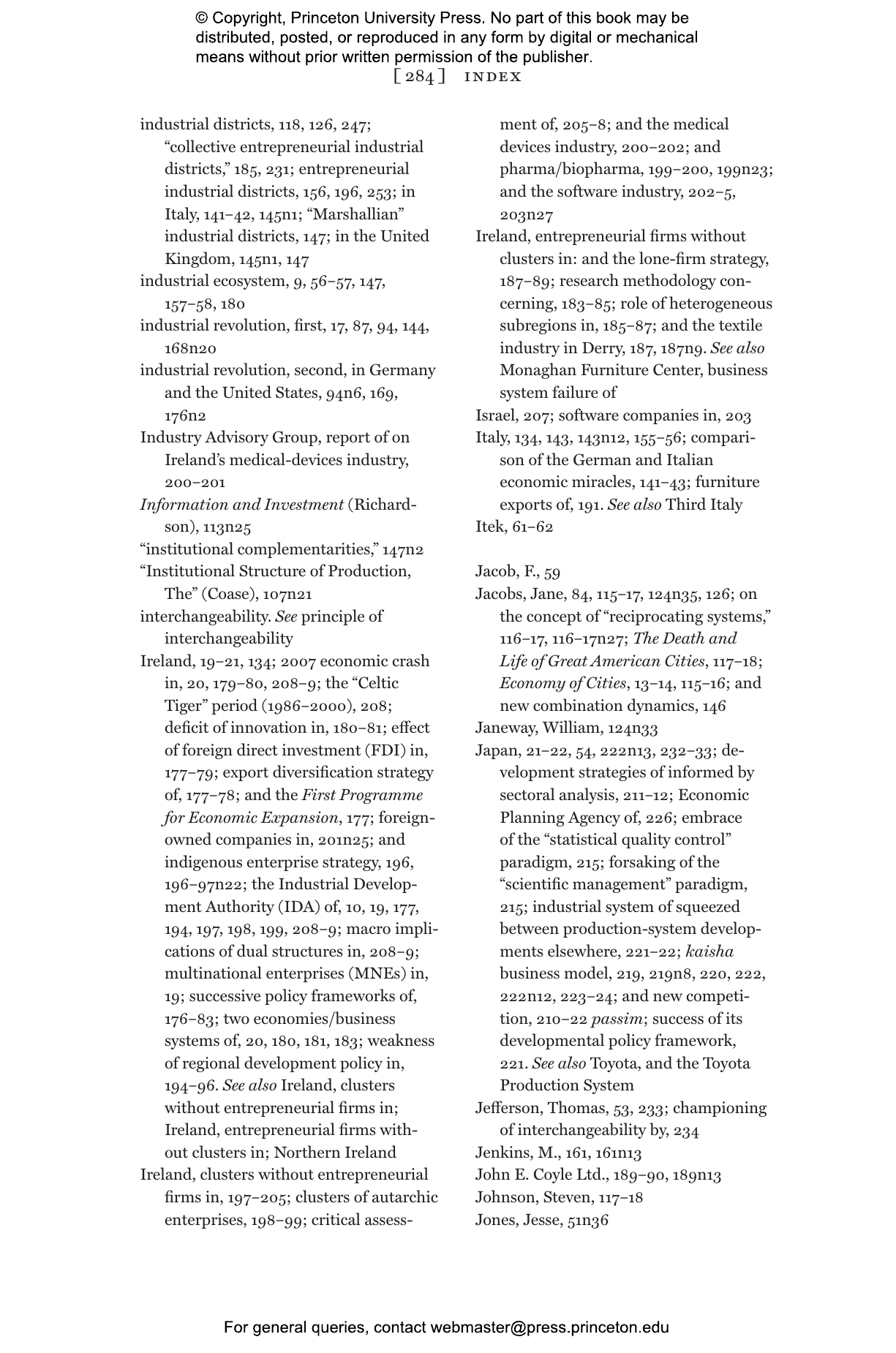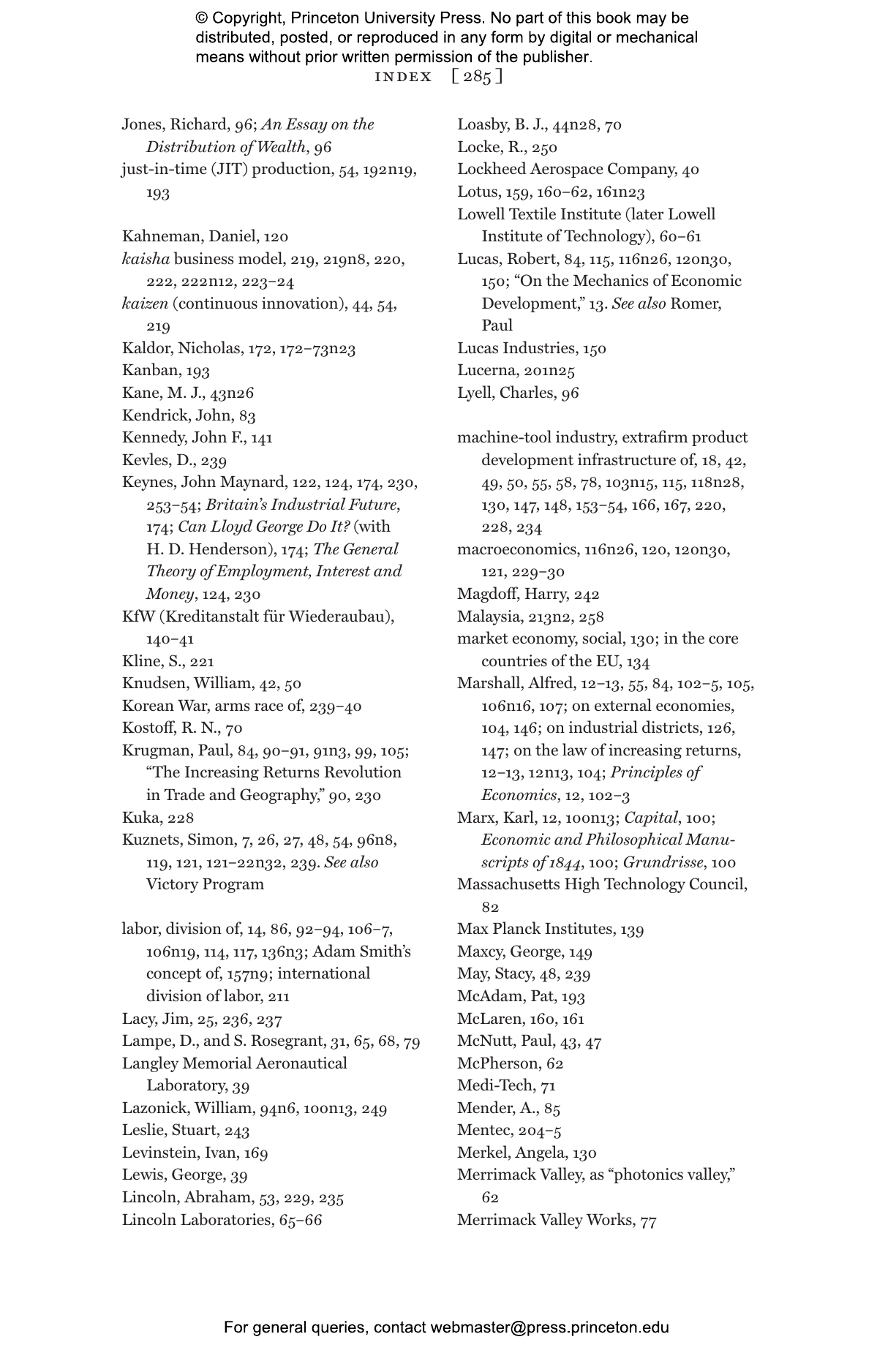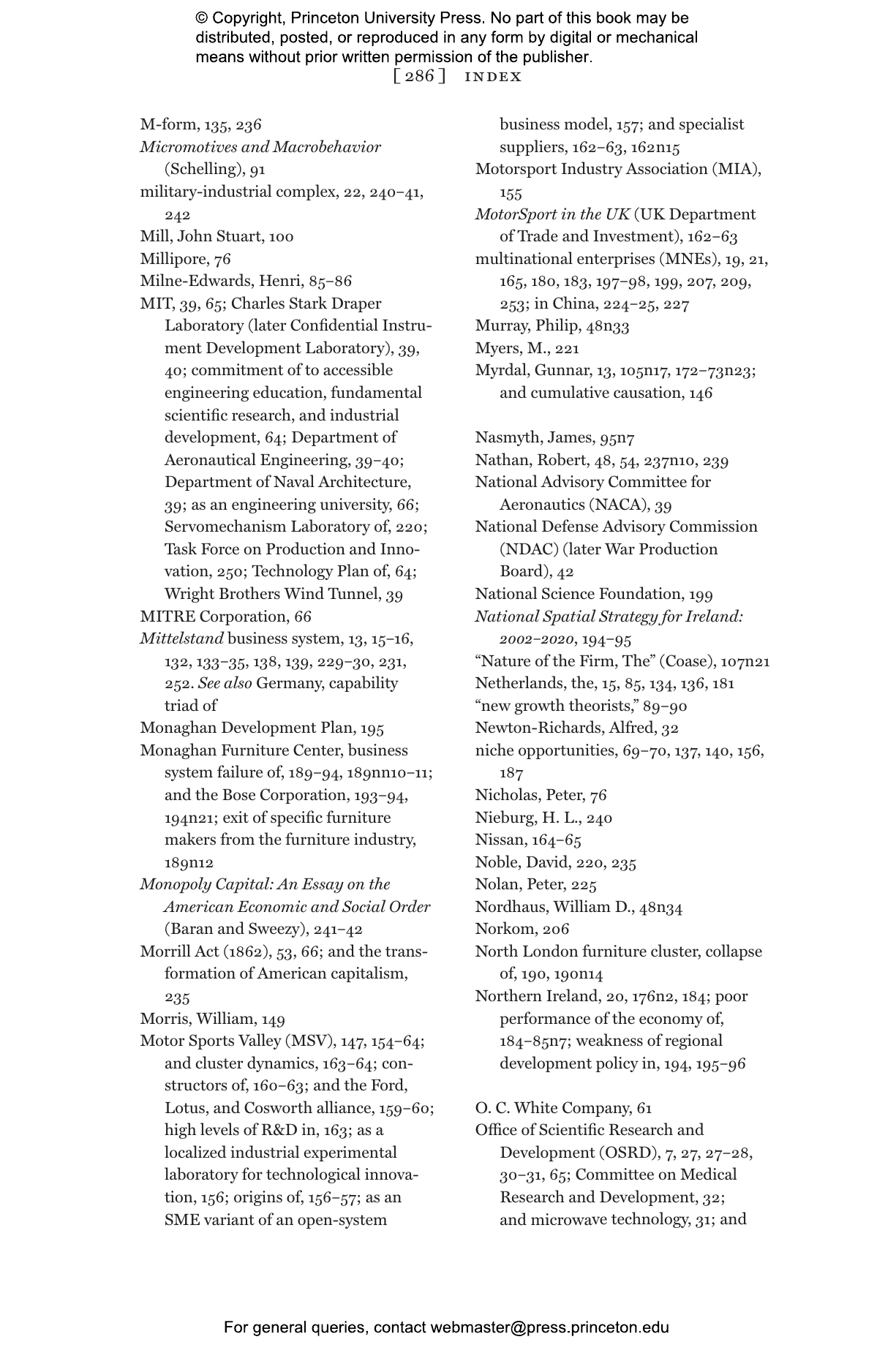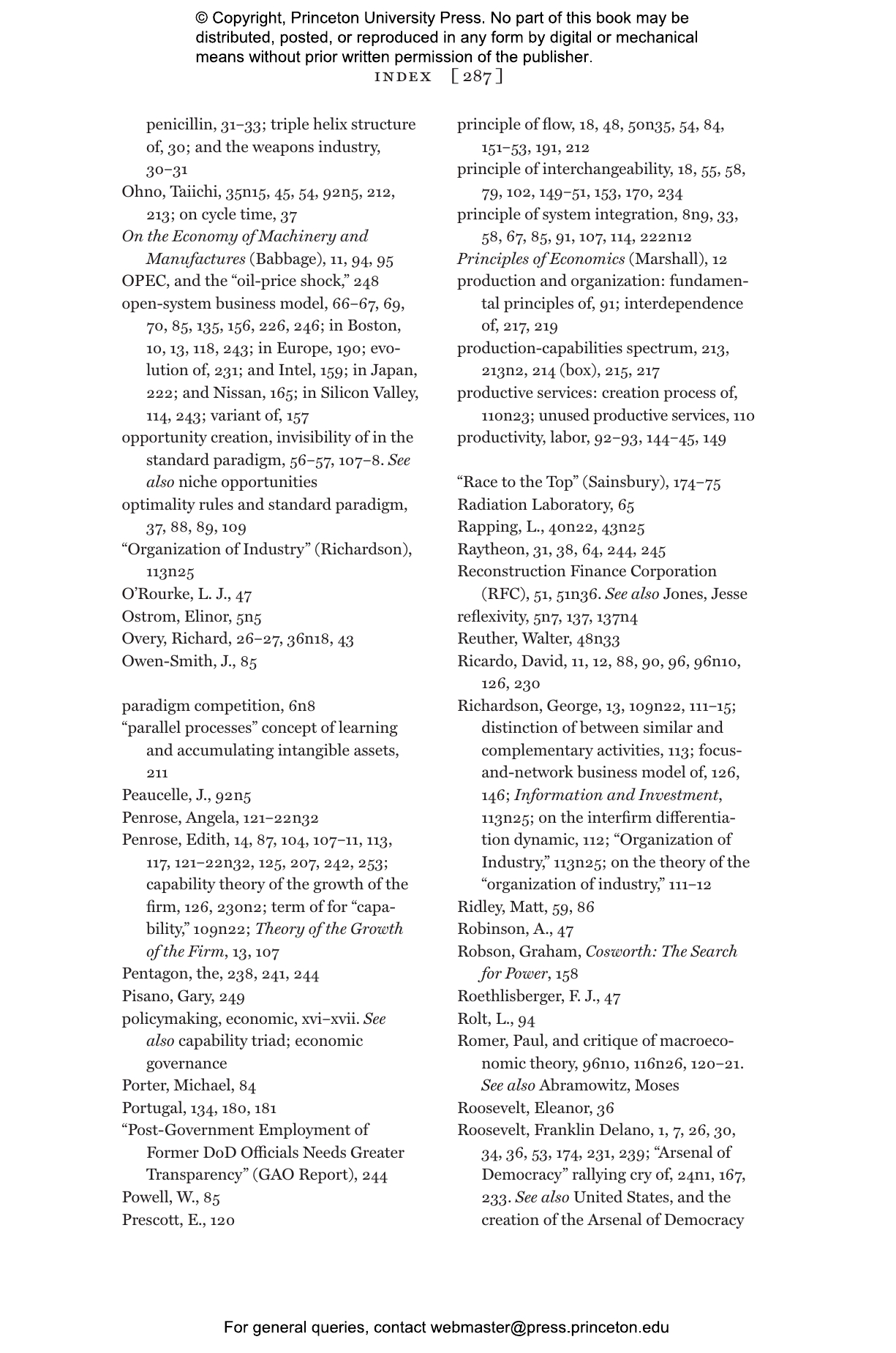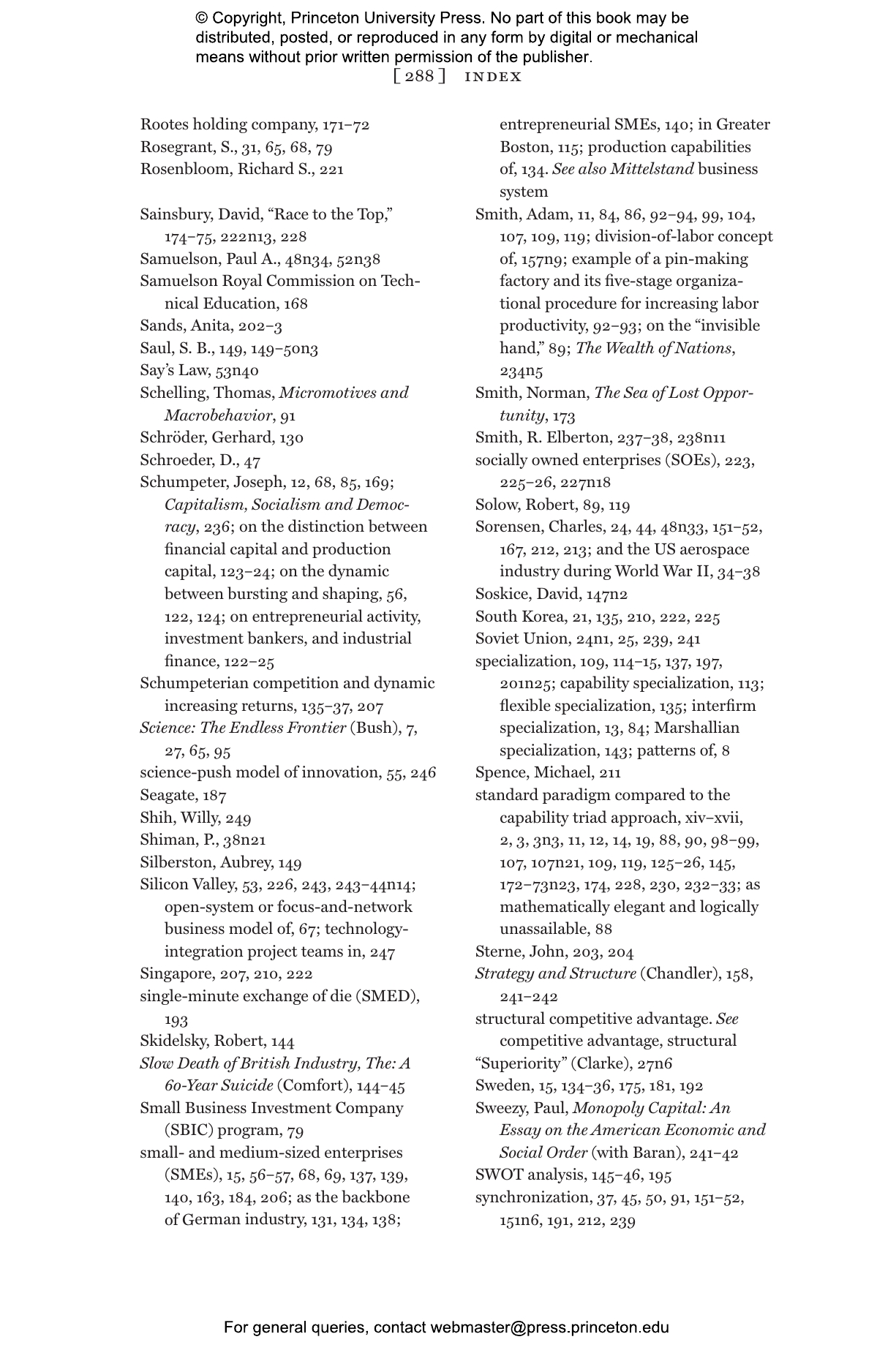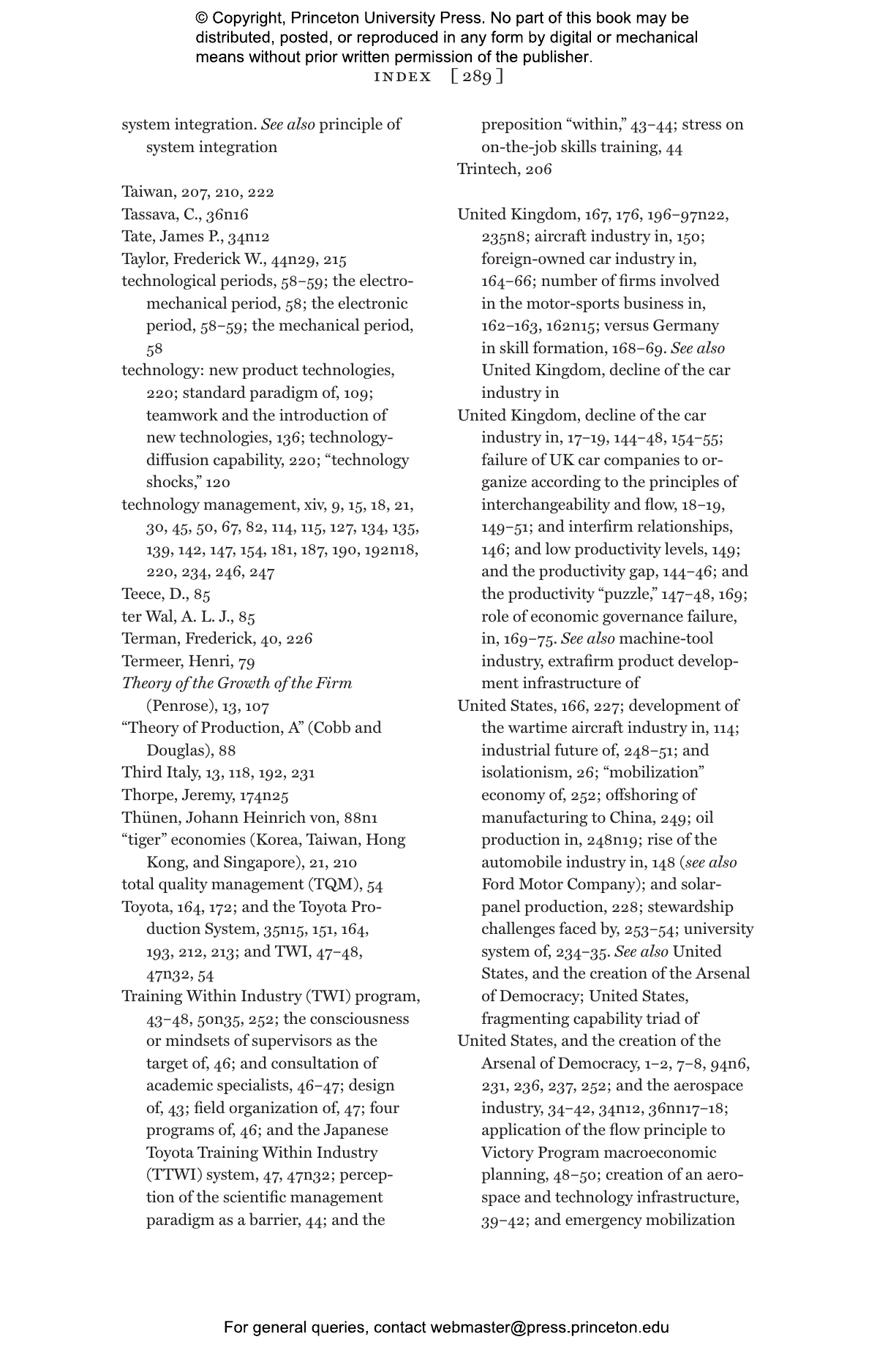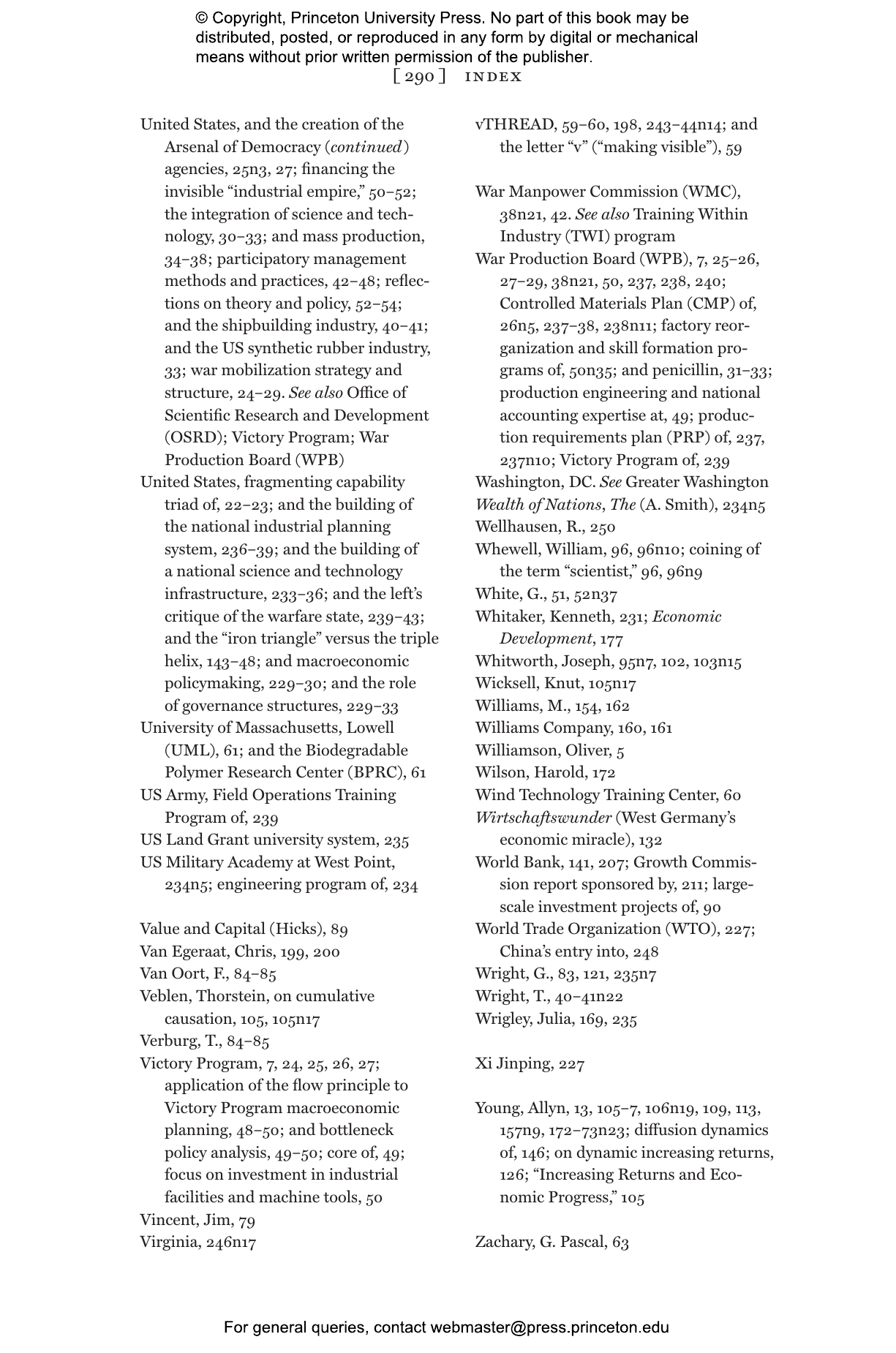Achieving economic growth is one of today’s key challenges. In this groundbreaking book, Michael Best argues that to understand how successful growth happens we need an economic framework that focuses on production, governance, and skills.
This production-centric framework is the culmination of three simultaneous journeys. The first has been Best’s visits to hundreds of factories worldwide, starting early as the son of a labor organizer and continuing through his work as an academic and industrial consultant. The second is a survey of two hundred years of economic thought from Babbage to Krugman, with stops along the way for Marx, Marshall, Young, Penrose, Richardson, Schumpeter, Kuznets, Abramovitz, Keynes, and Jacobs. The third is a tour of historical episodes of successful and failed transformations, focusing sharply on three core elements—the production system, business organization, and skill formation—and their interconnections.
Best makes the case that government should create the institutional infrastructures needed to support these elements and their interconnections rather than subsidize individual enterprises. The power of Best’s alternative framework is illustrated by case studies of transformative experiences previously regarded as economic “miracles”: America’s World War II industrial buildup, Germany’s postwar recovery, Greater Boston’s innovation system, Ireland’s tech-sector boom, and the rise of the Asian Tigers and China.
Accessible and engaging, How Growth Really Happens is required reading for anyone who wants to advance today’s crucial debates about industrial policy, climate change, globalization, technological change, and the future of work.
Awards and Recognition
- Winner of the 2018 Schumpeter Prize Competition, International Joseph A. Schumpeter Society
"A rare breadth of economic analysis."—Paschal Donohoe, Irish Times
"Best discerns and deciphers key economic trends at critical junctures in world history, and we should warmly welcome his willingness to sacrifice many of the sacred cows of economics on the altar of greater understanding."—Michael M. Rosen, Weekly Standard
"A wonderful analysis of how regions catch up and shape the industrial frontier through the capability triad."—Rajah Rasiah, Asia Pacific Business Review
"Best shows that overlooking production in economics has led to a major misunderstanding of how the economy grows in the real world."—Choice
"In How Growth Really Happens, Michael Best consolidates a lifetime of research and wisdom on alleged ‘miracles’ of rapid economic growth. The result is a masterful synthesis of historical case studies with the evolving theoretical conceptions of often-neglected economic thinkers. Strongly recommended for economic historians and policymakers alike."—Gavin Wright, professor emeritus, Stanford University
"Periods of rapid economic growth provide a rich environment for studying the relationship between industrial policy, organizational change, technological innovation, and entrepreneurial activity. With U.S. productivity growth languishing, this timely, exciting, and highly readable book draws on economic theory and lived historical experience to provide original insights into how to improve the performance of regional and national economies by fostering innovation and dynamism."—Eileen Appelbaum, Center for Economic and Policy Research
"I have witnessed too often the failure of macro models to understand or even take account of what makes production processes work best. It is clear that the right ecosystems are vital in generating sustainable growth and best use of technology. As we are all struggling to find a new economics paradigm, Michael Best’s emphasis on better connecting economic thinking with what actually goes on in the real world is absolutely spot-on."—Vicky Pryce, former Joint Head of the UK Government Economic Service and coauthor of Redesigning Manufacturing
"In their fascination with voluntary exchanges between rational individuals, today’s mainstream economists have failed to understand that the most important economic changes originate in factories, not markets. Drawing on his expansive knowledge of economic theories, economic history, and enterprise development, Michael Best shows how the neglect of production in economics has led to a fundamental misunderstanding of how the economy works and develops in the real world. This book will profoundly change the way we see the economy. A masterpiece."—Ha-Joon Chang, author of Economics: The User’s Guide
"Today, when economic and political tremors have shaken many previously unquestioned policy assumptions to their foundations, How Growth Really Happens offers a fresh perspective on issues that could hardly be more relevant. This is a timely book, one that has the potential to become a seminal study of economic growth."—Robert H. Wade, London School of Economics
"By offering illuminating case studies and linking the analysis of production, enterprise, and governance, Michael Best offers a sustained discussion of topics that mainstream economics has tended to neglect. How Growth Really Happens is a highly significant contribution to economics."—Carol E. Heim, University of Massachusetts, Amherst
“Best discerns and deciphers key economic trends at critical junctures in world history, and we should warmly welcome his willingness to sacrifice many of the sacred cows of economics on the altar of greater understanding.”—Michael M. Rosen, Weekly Standard
